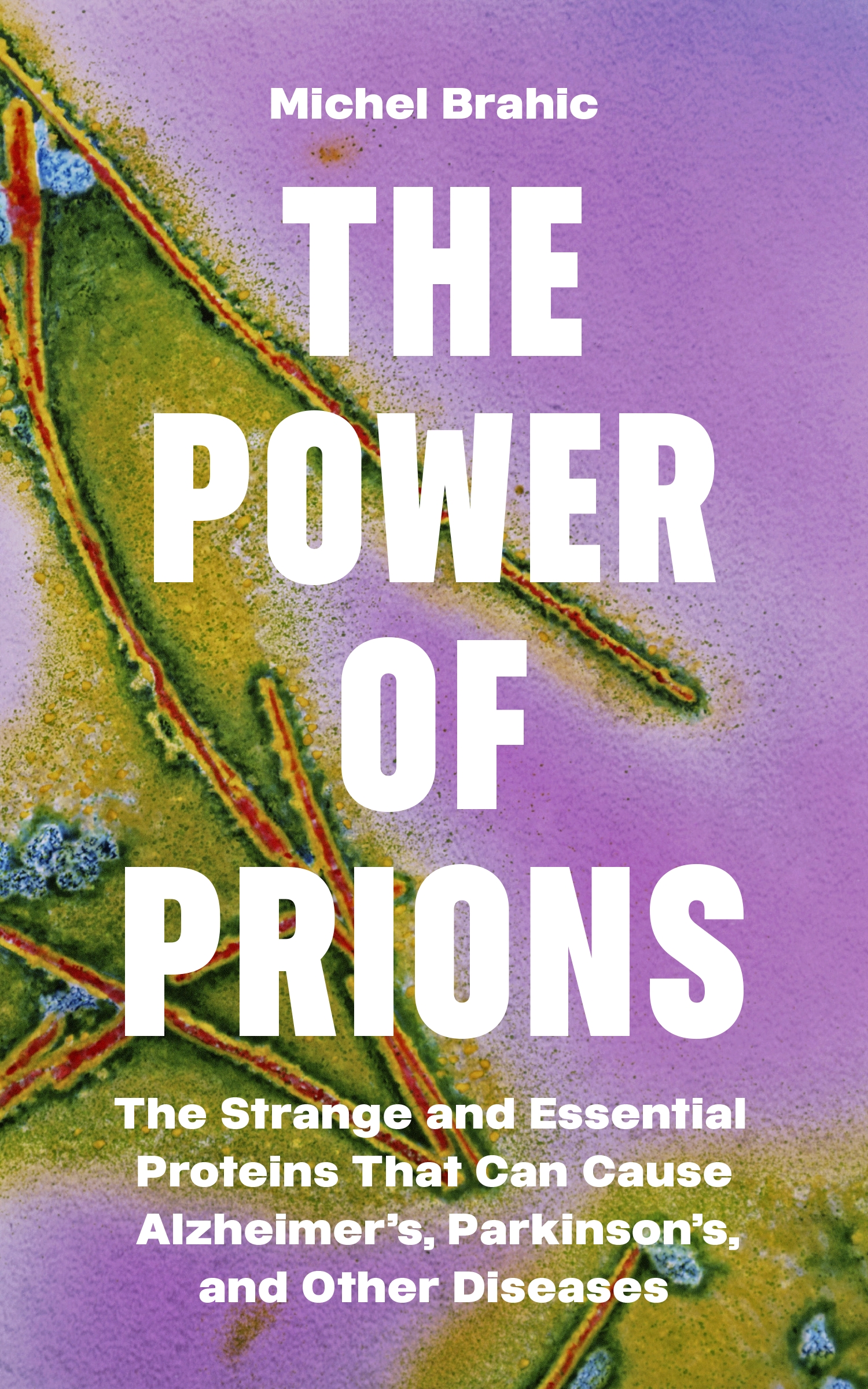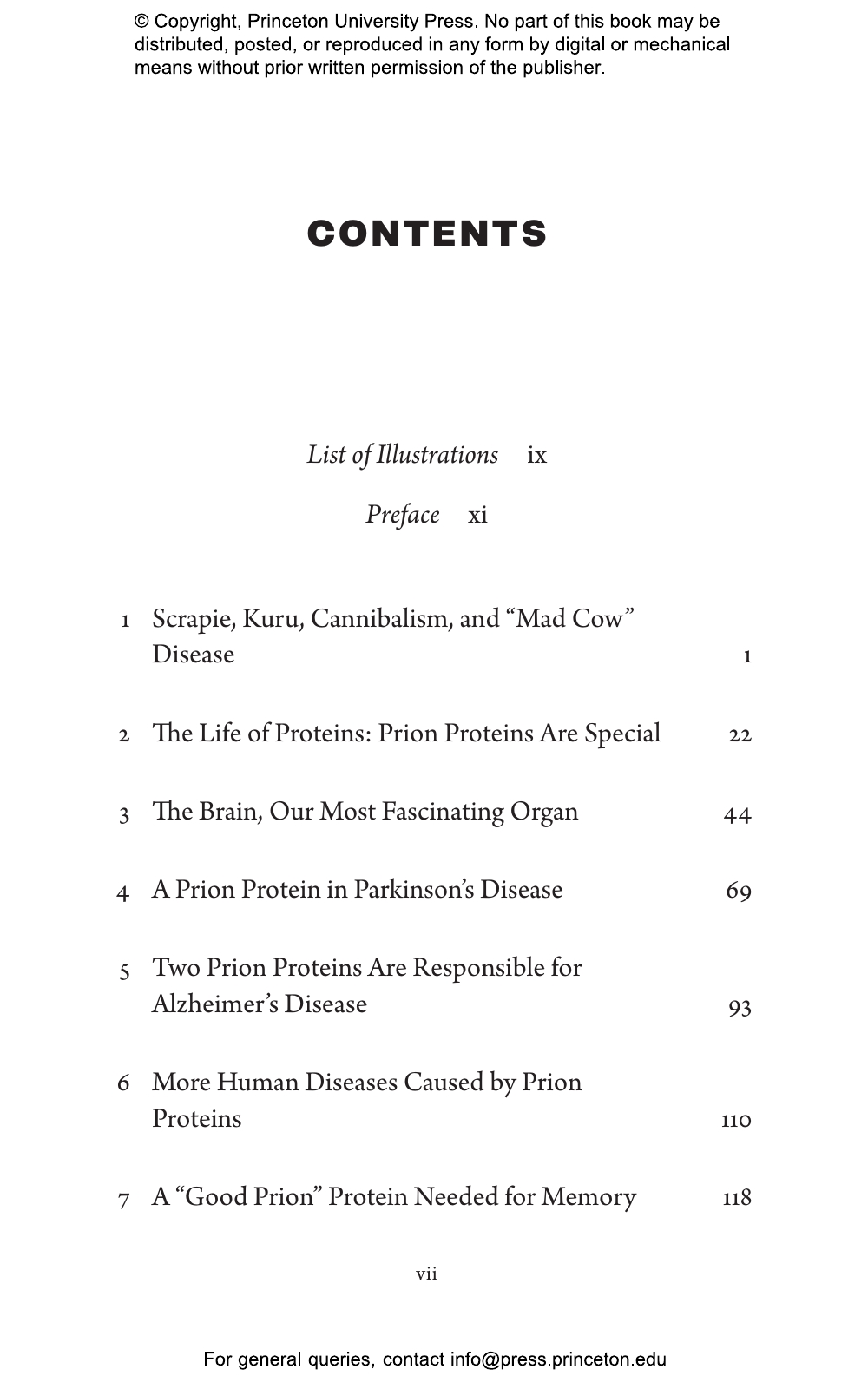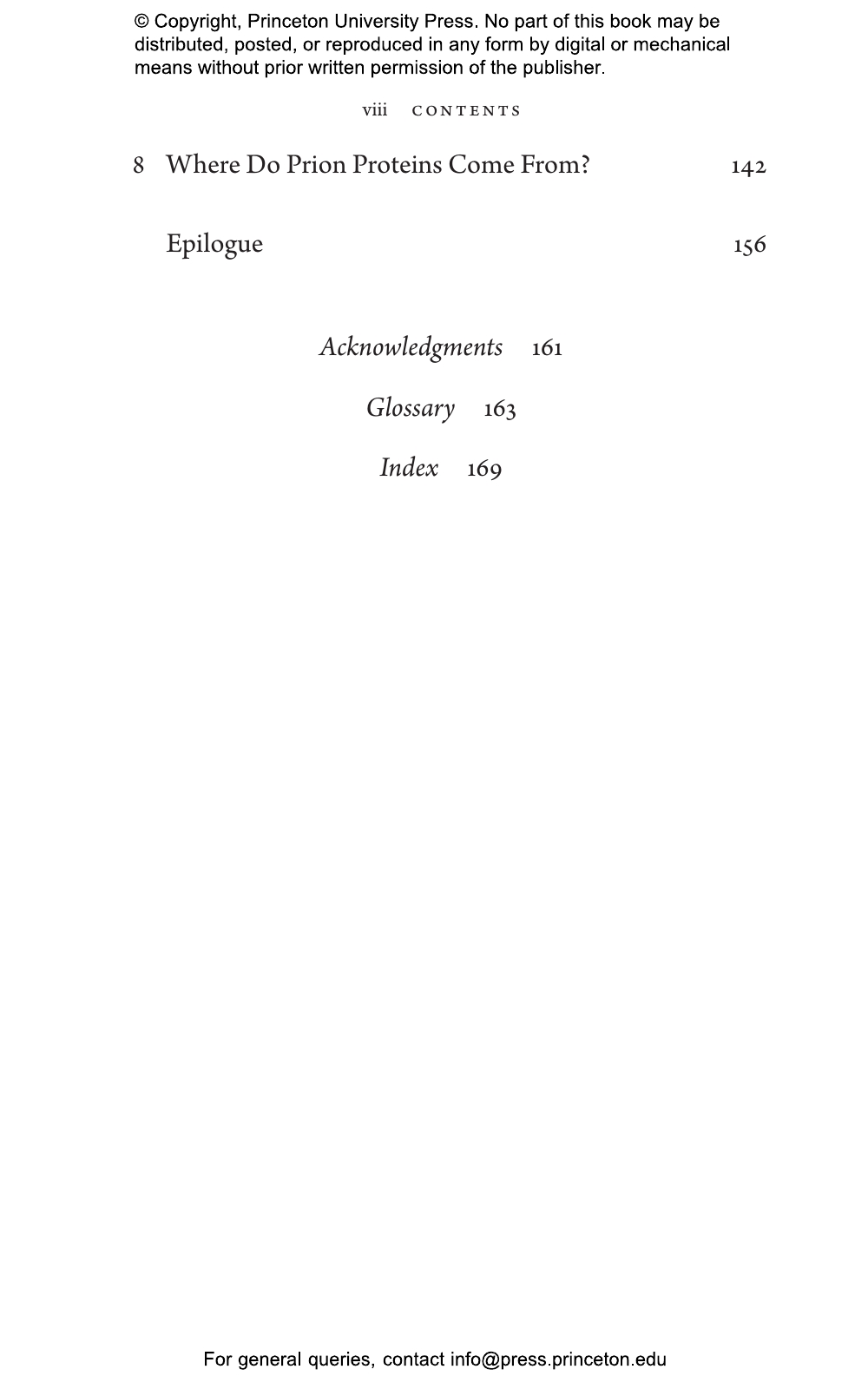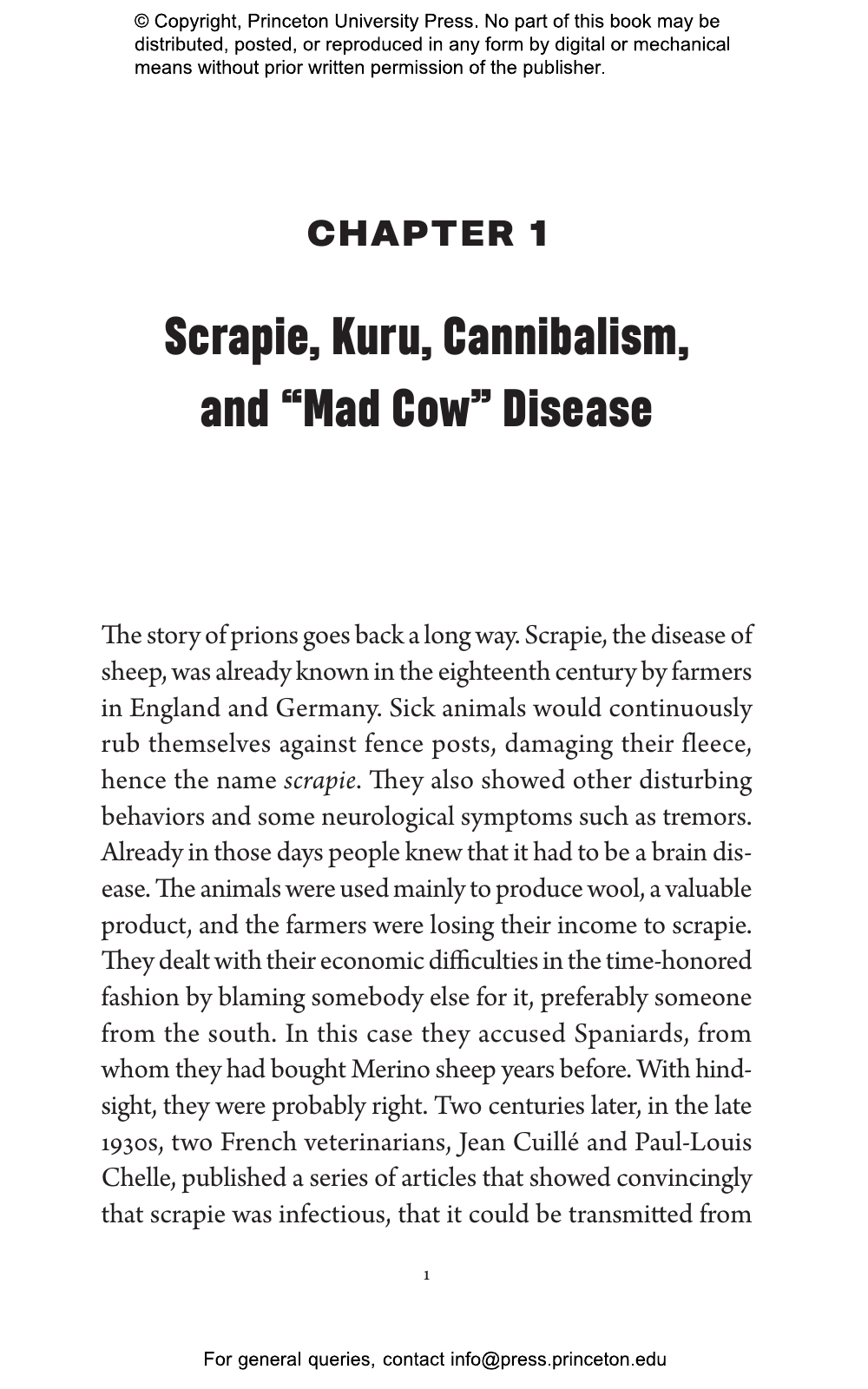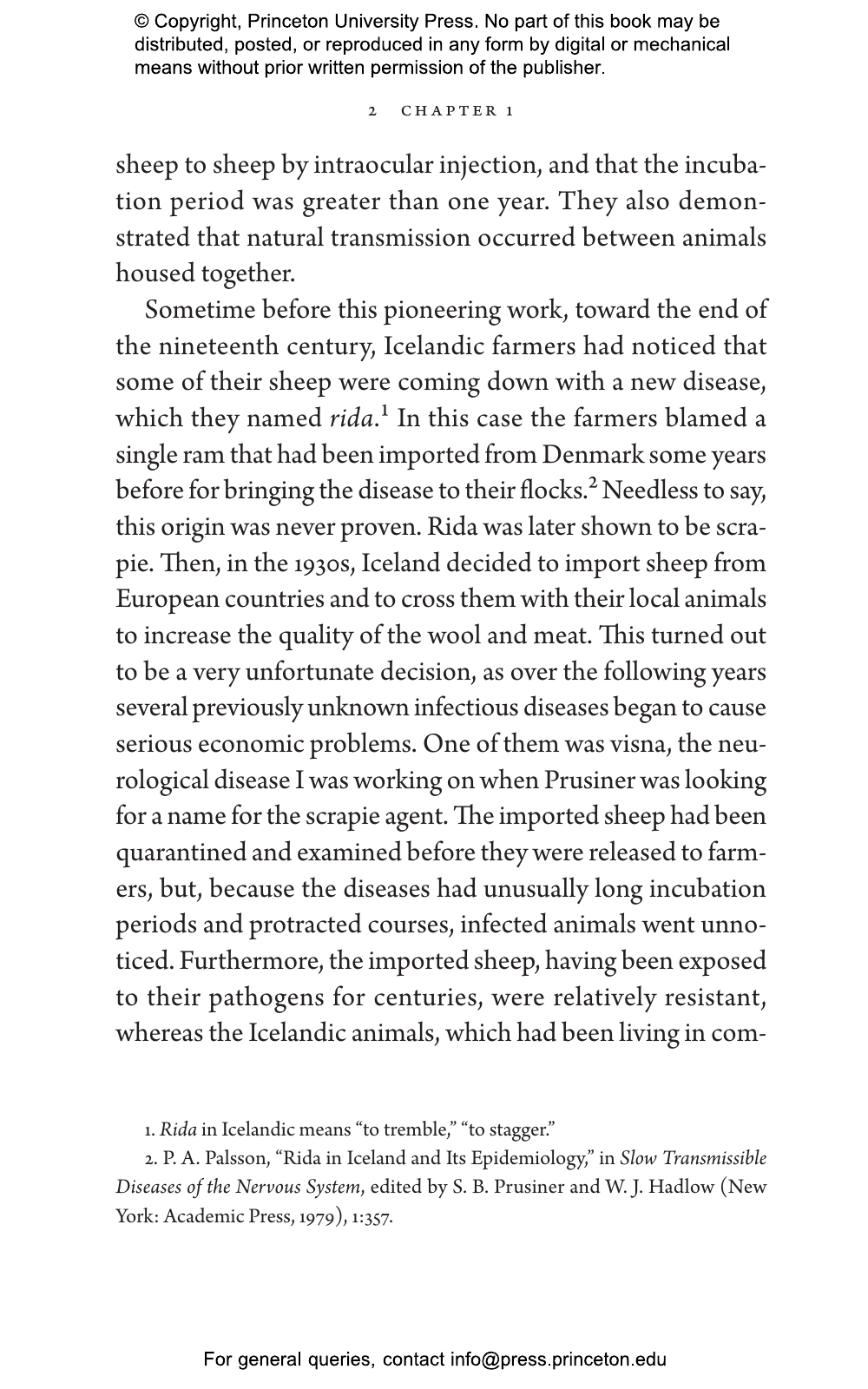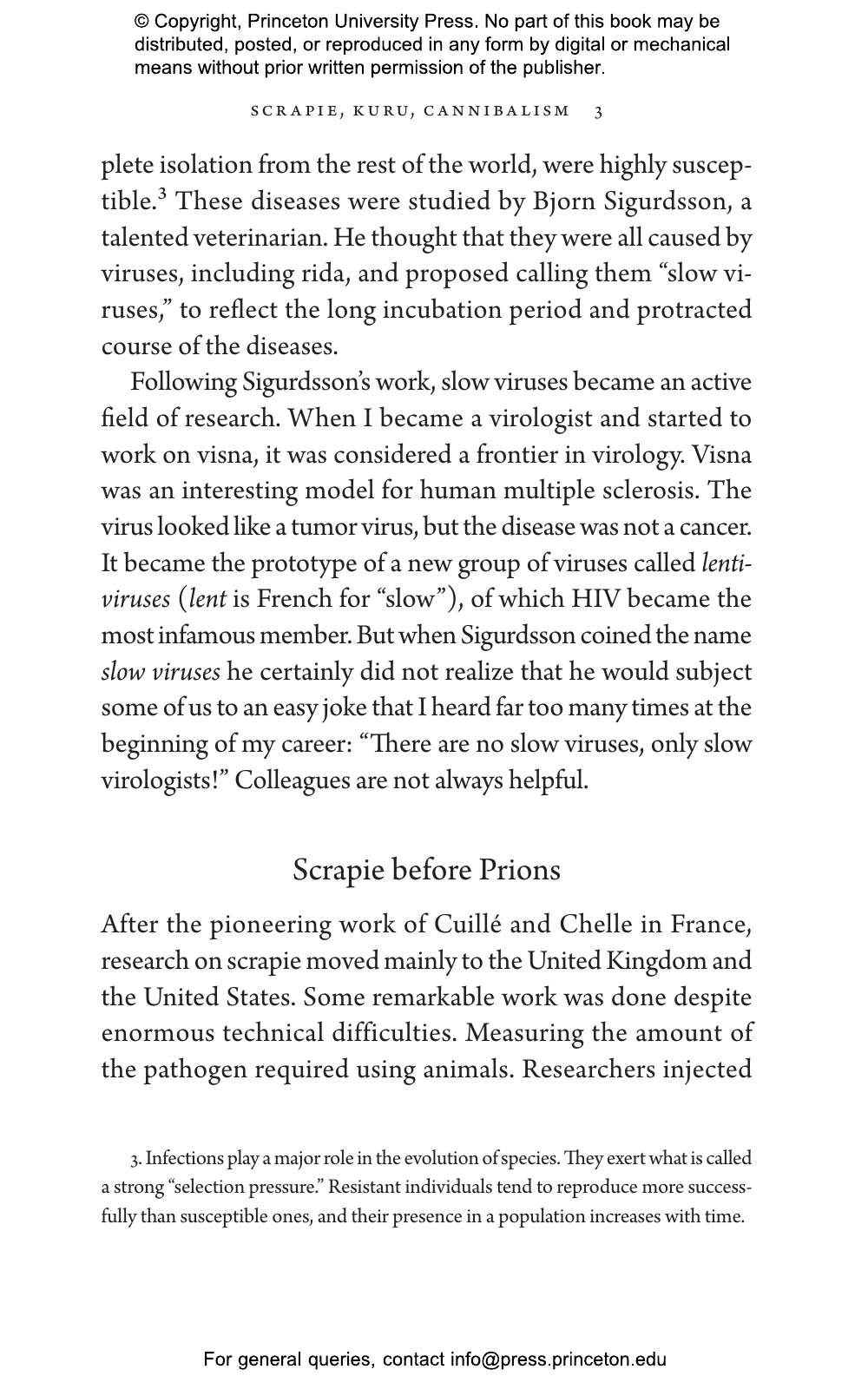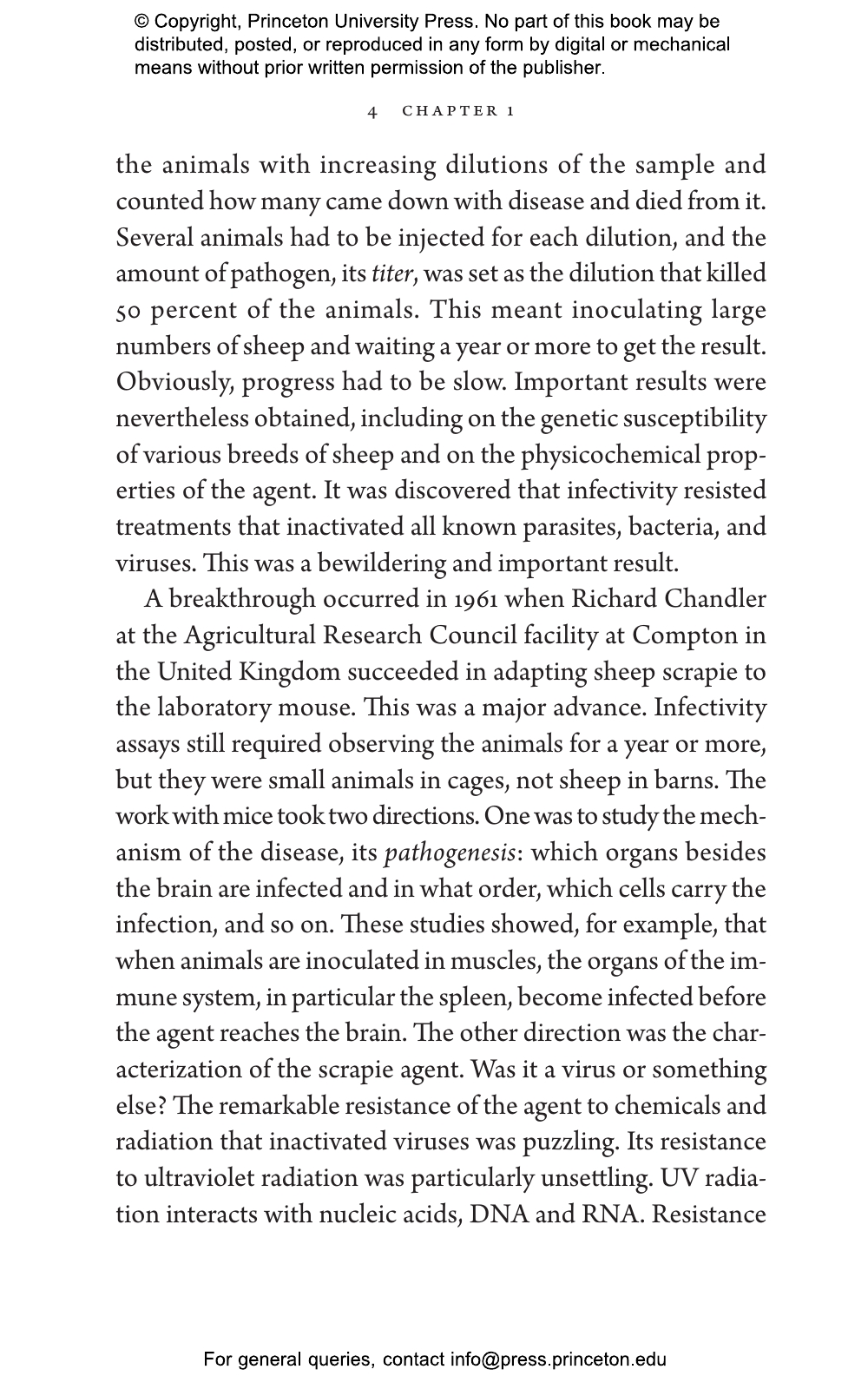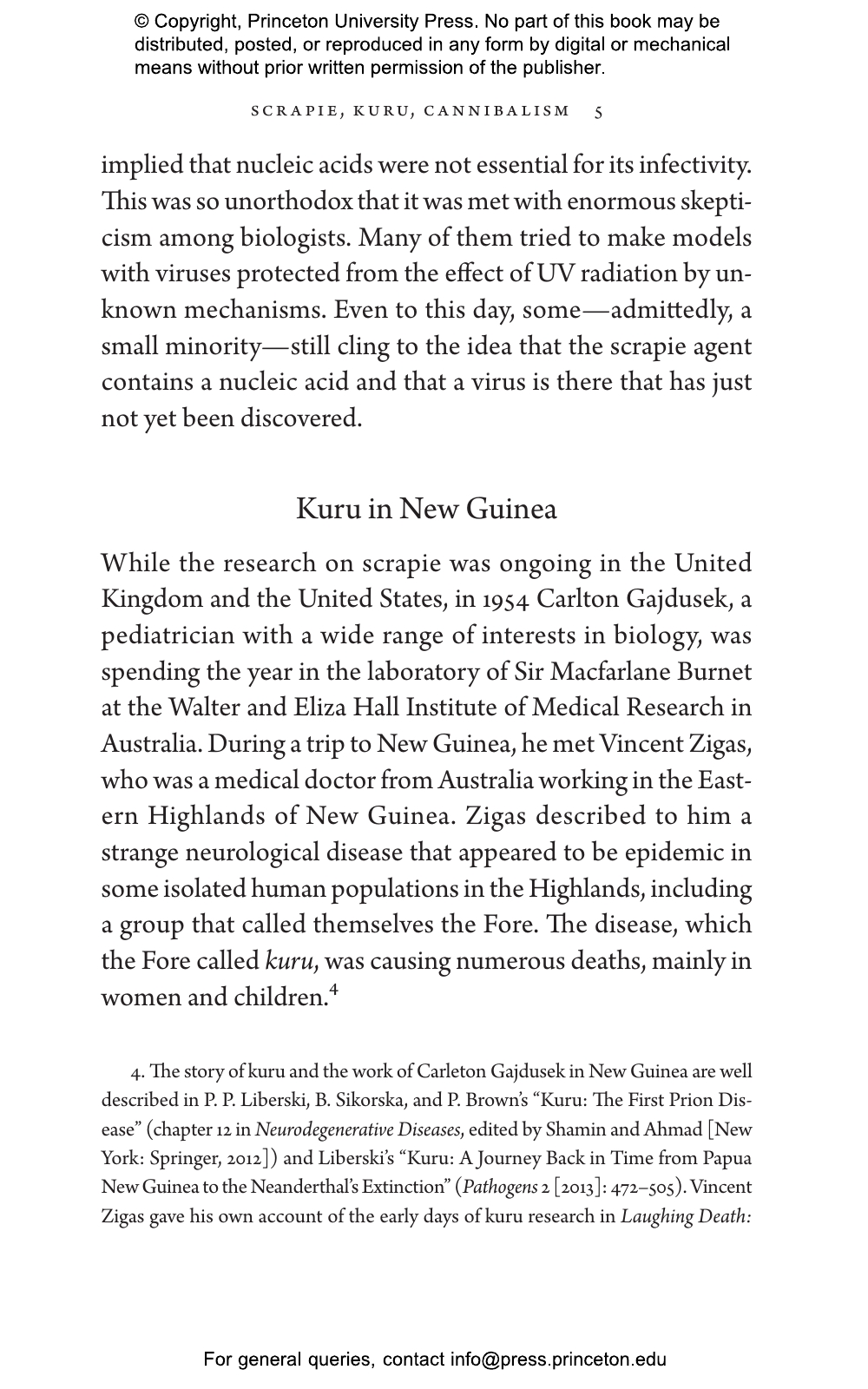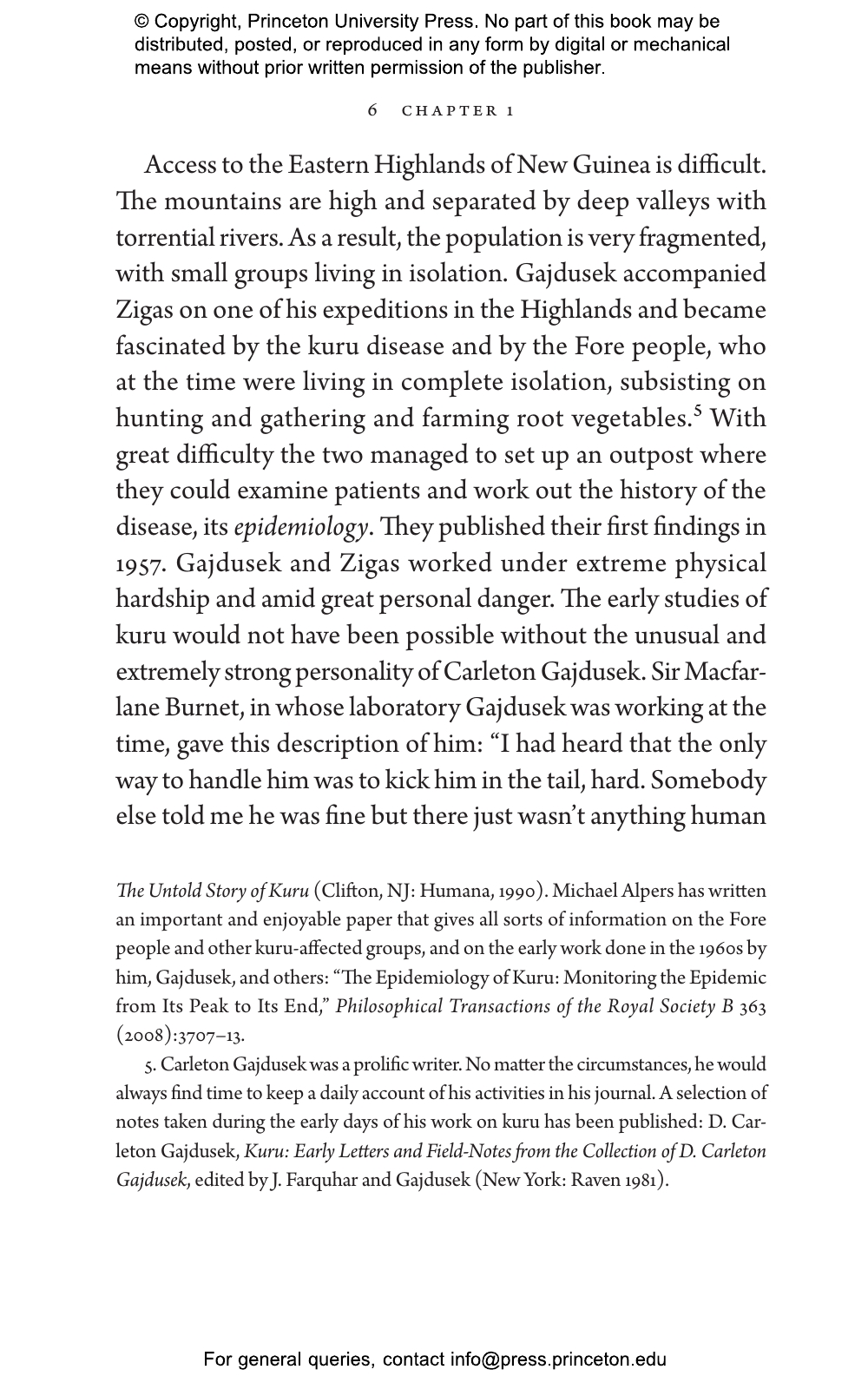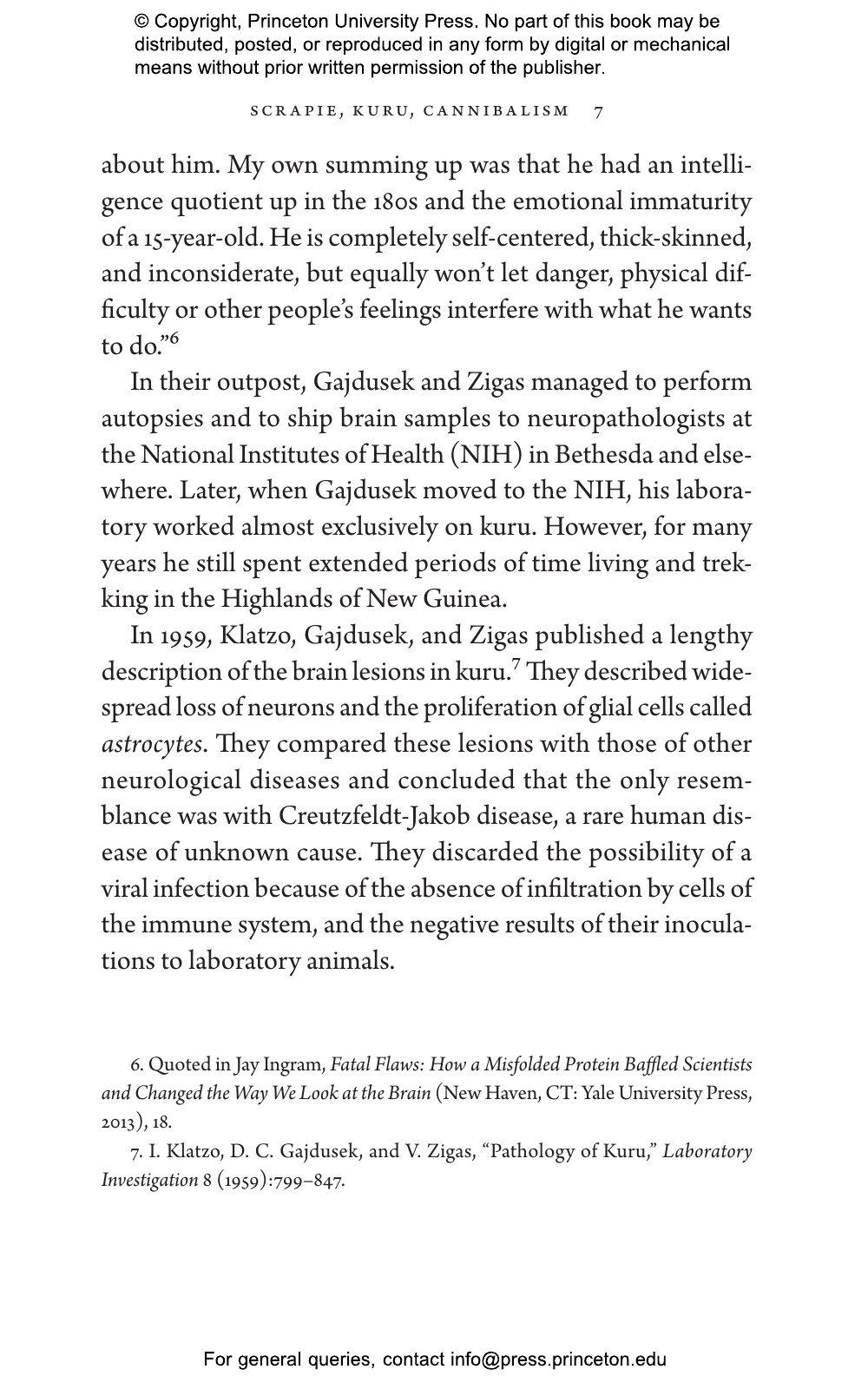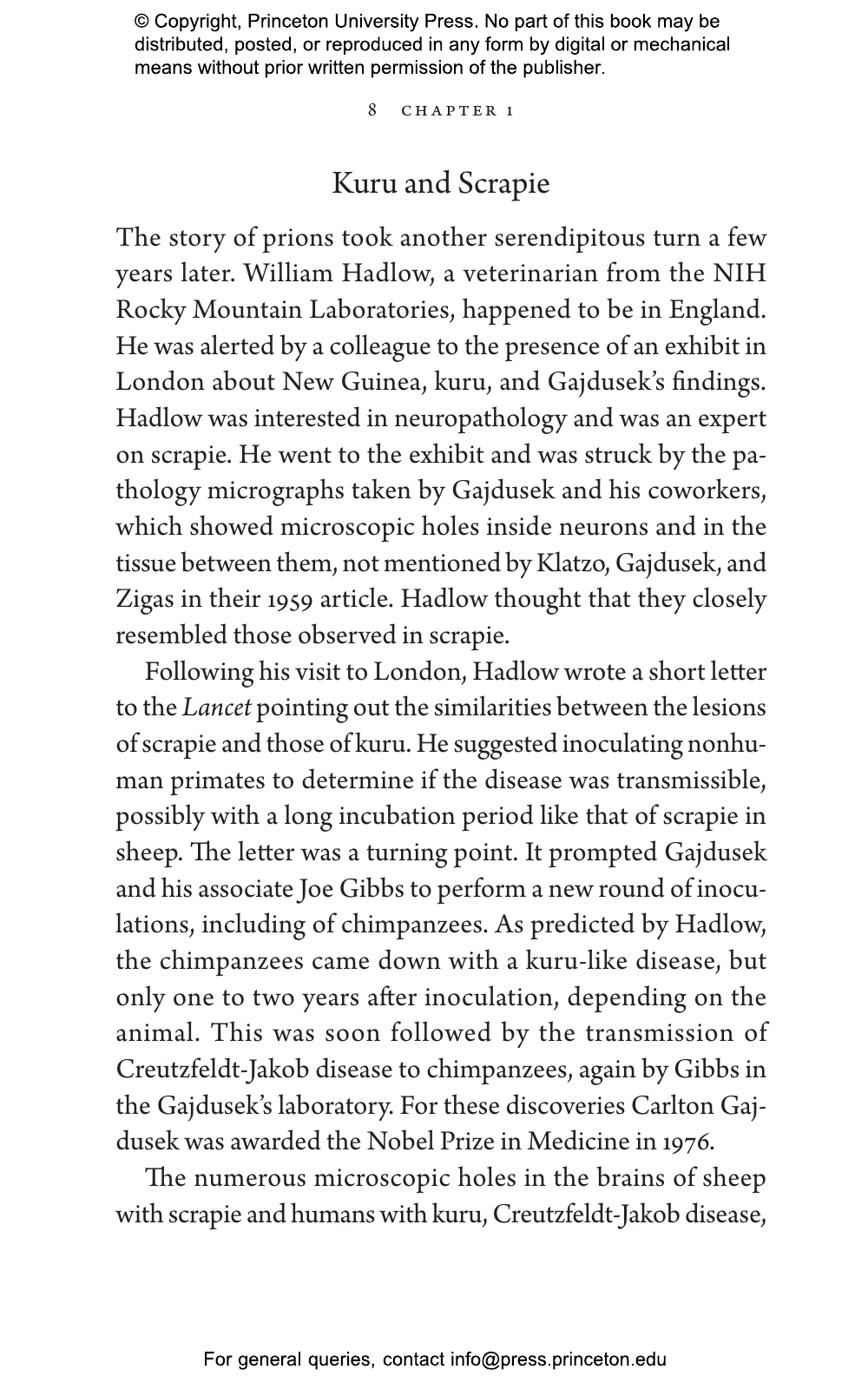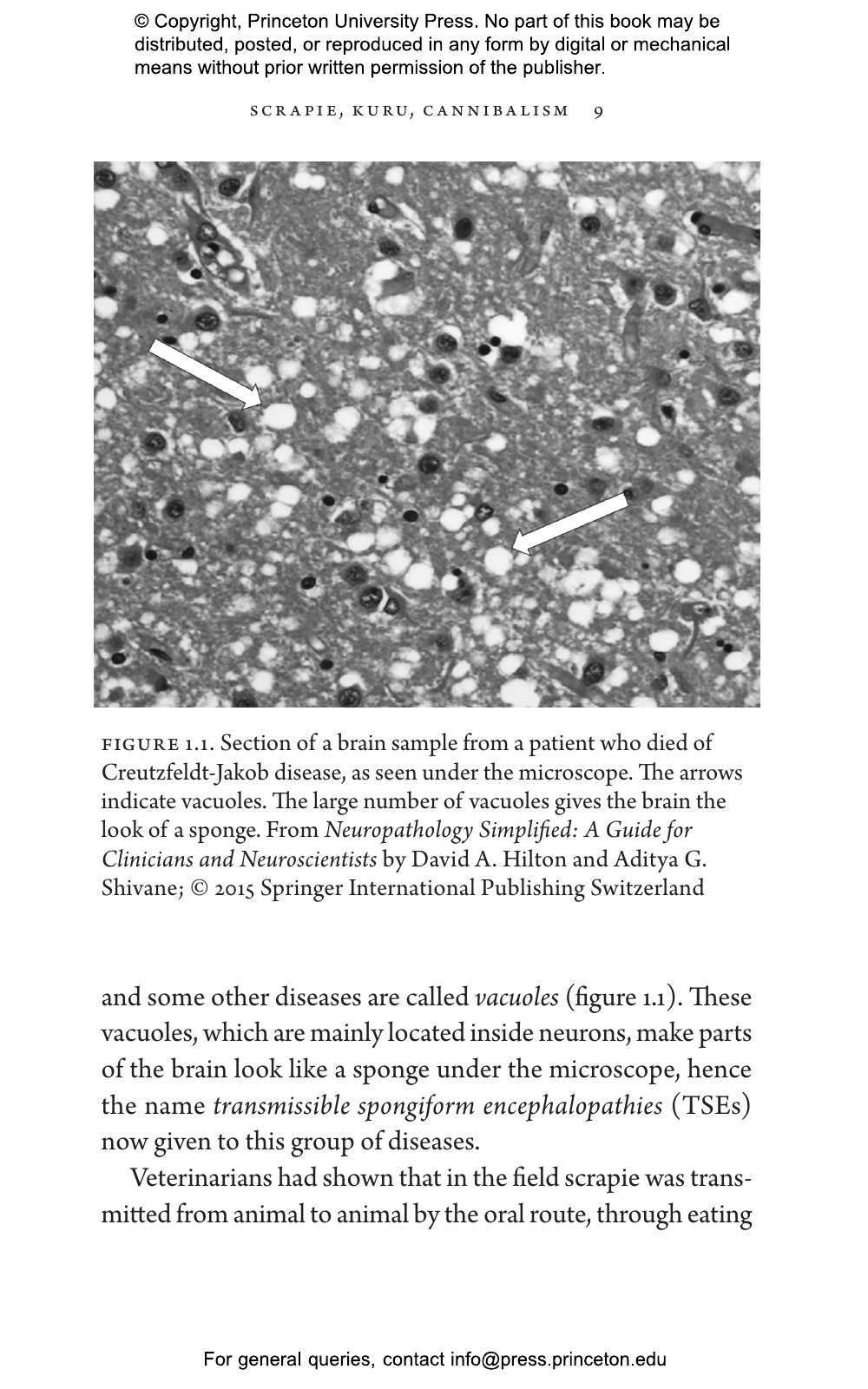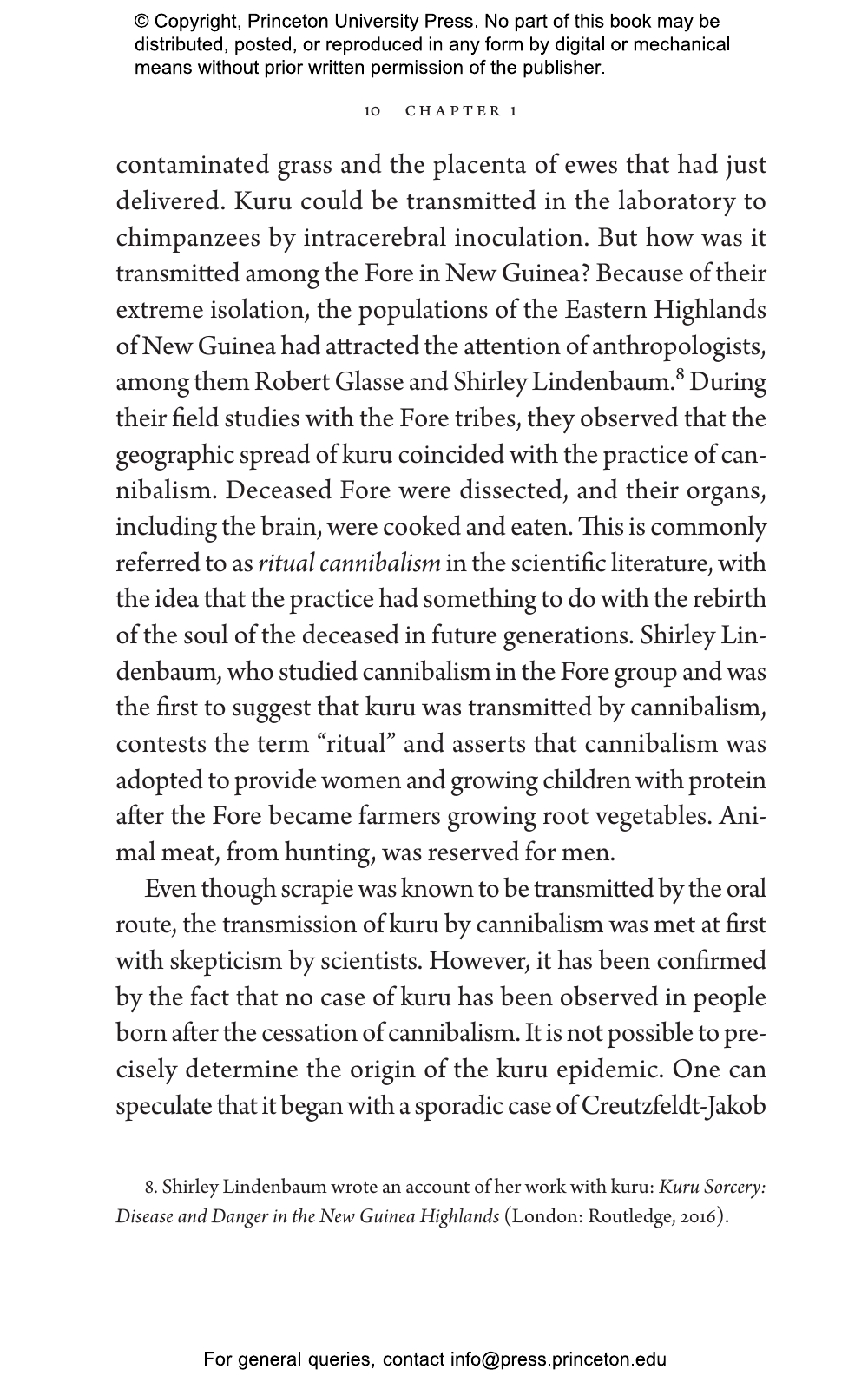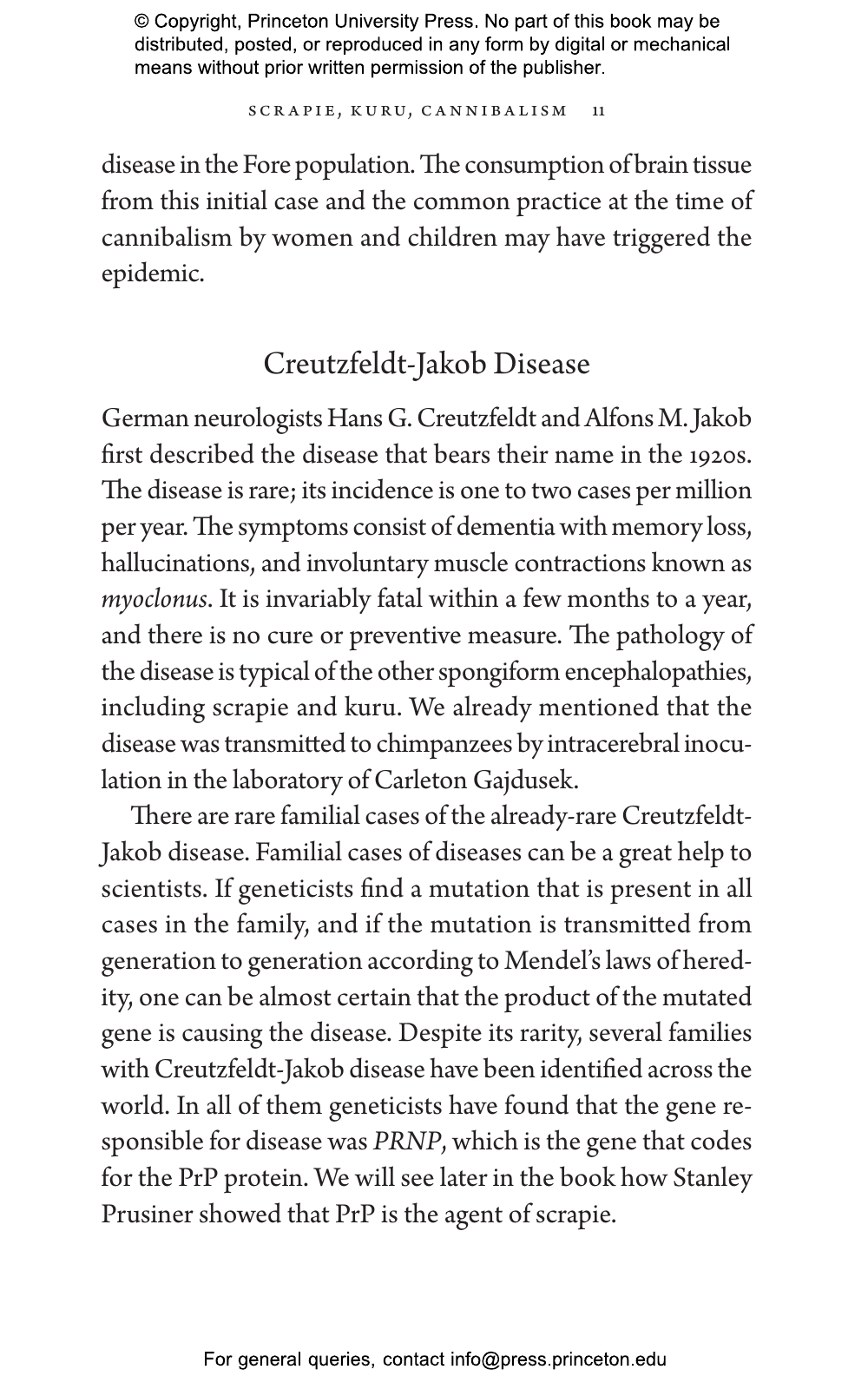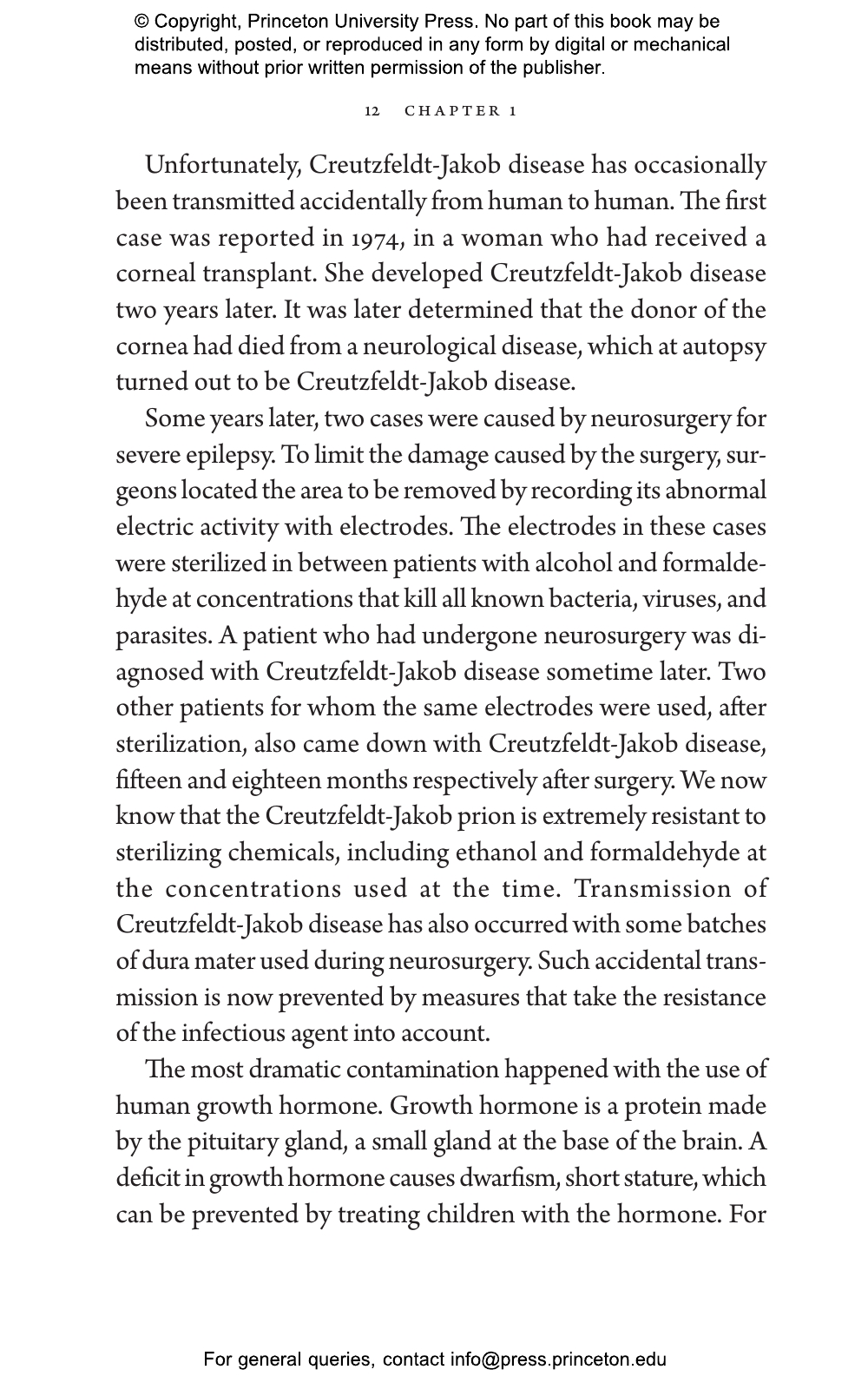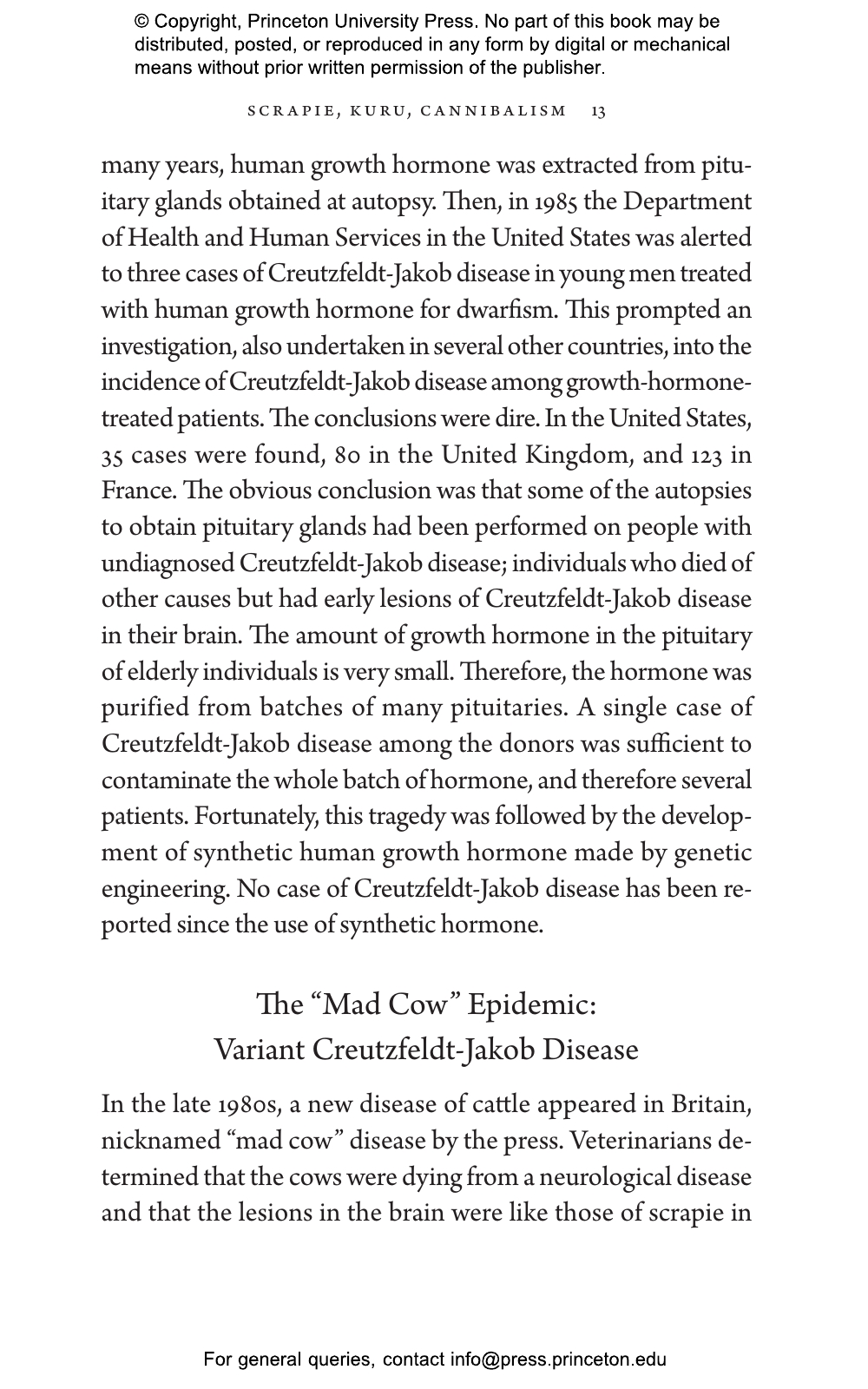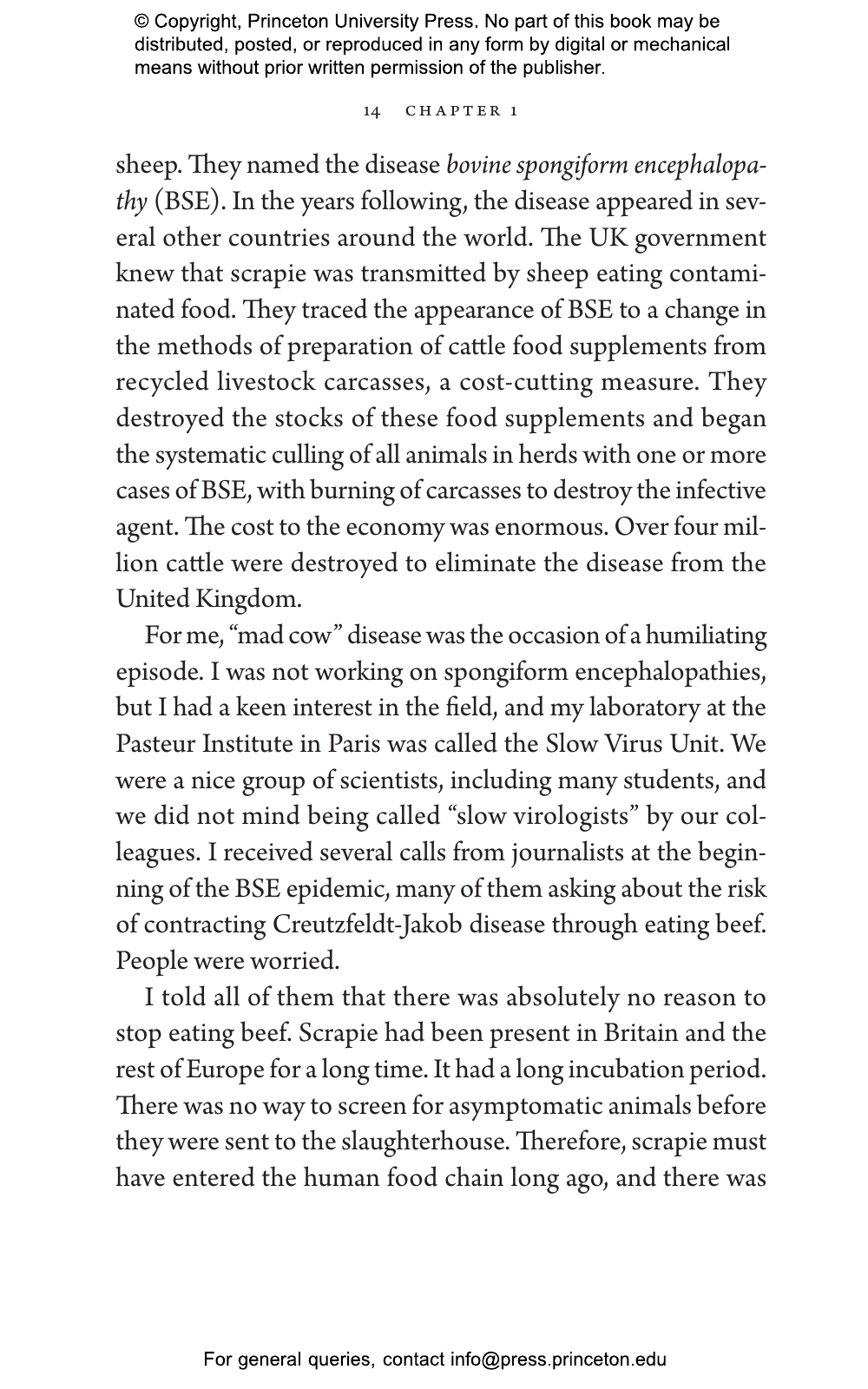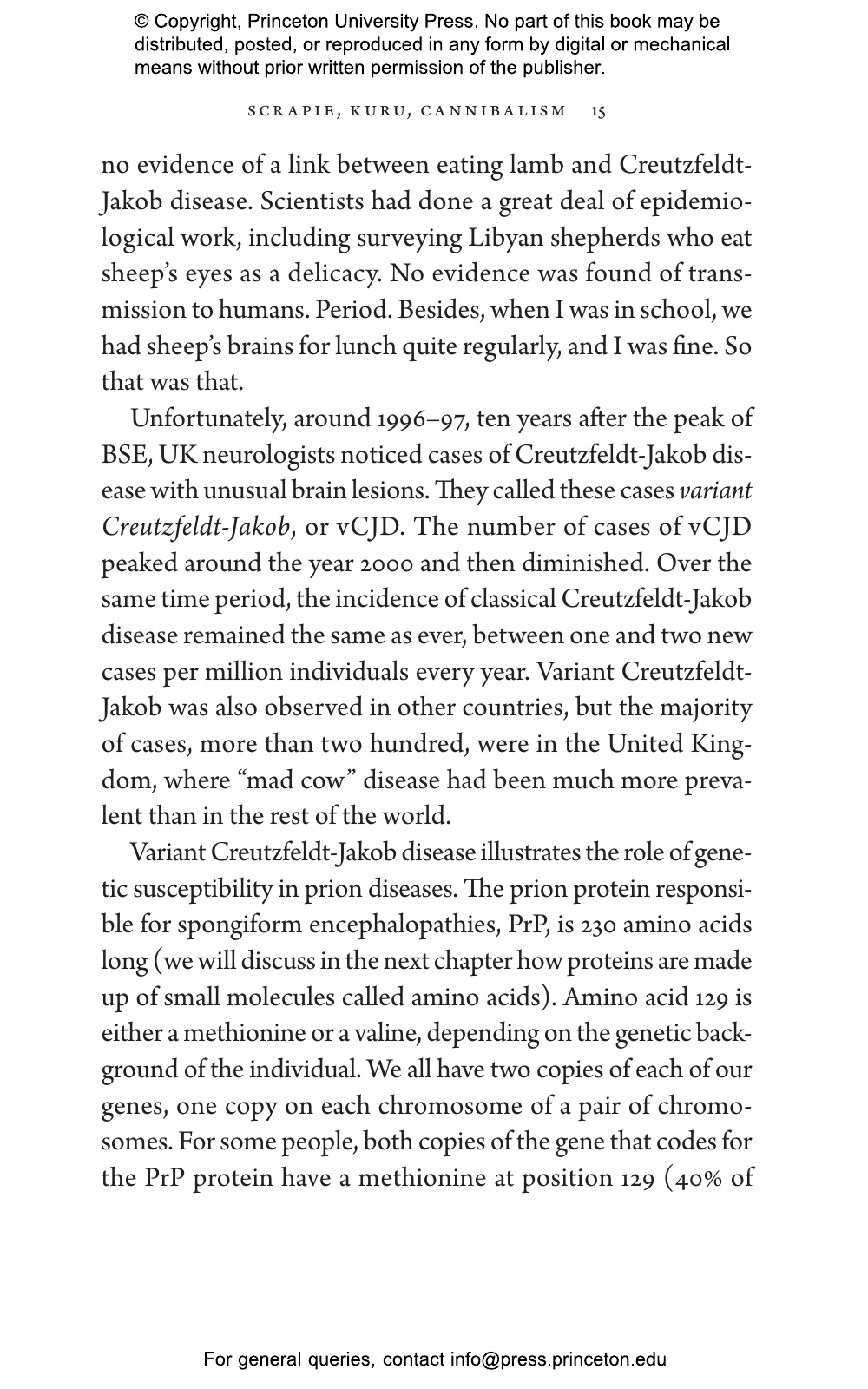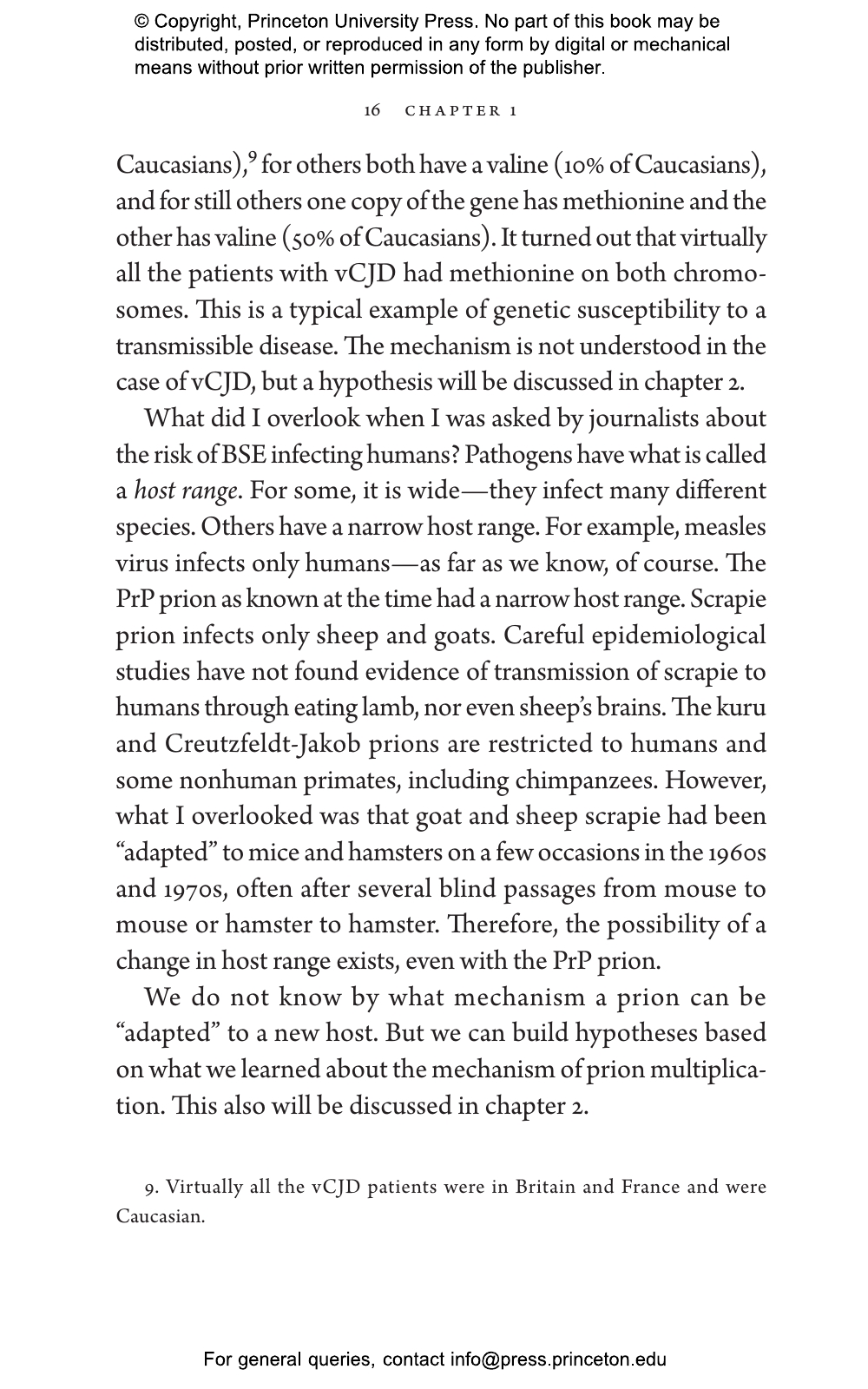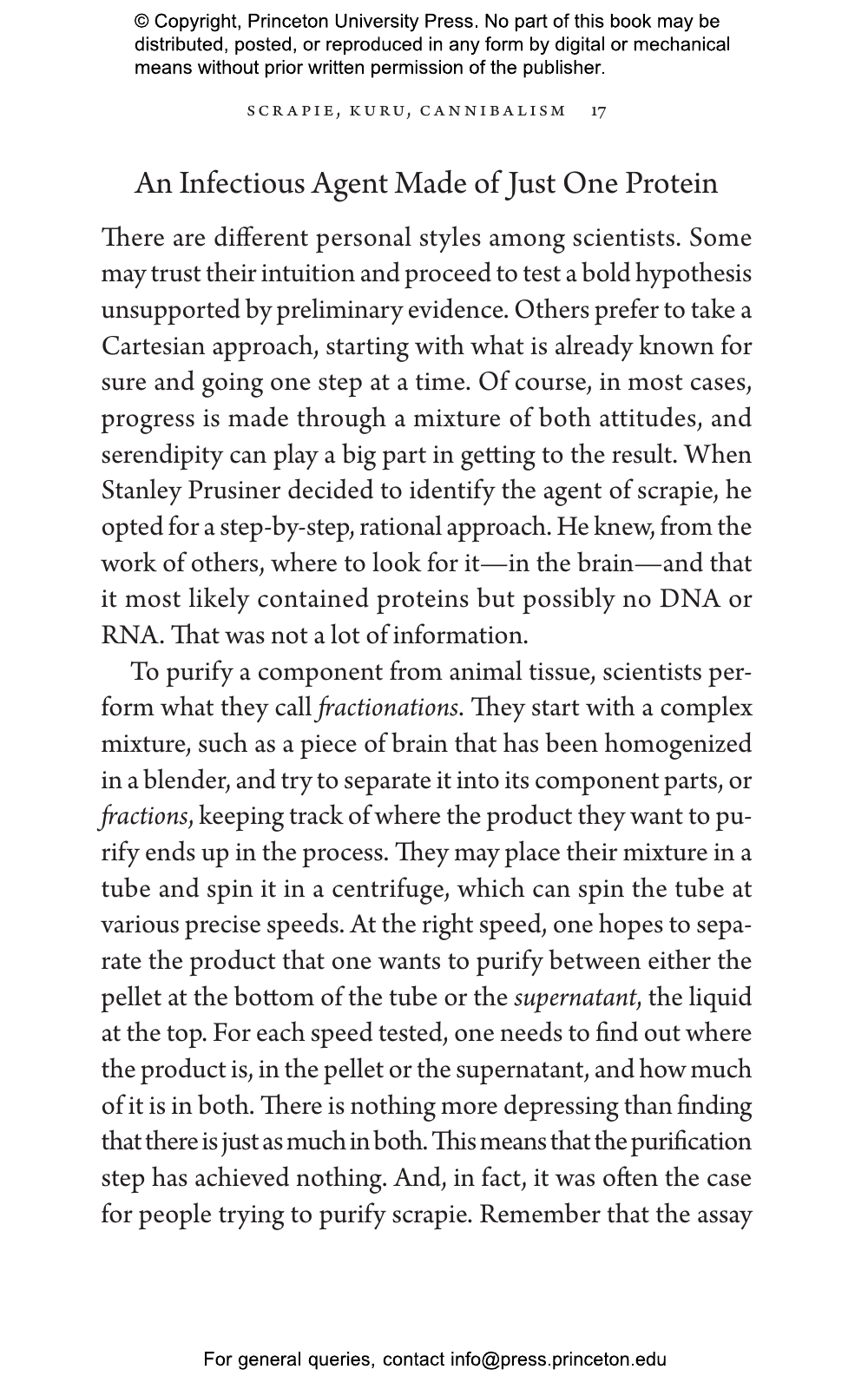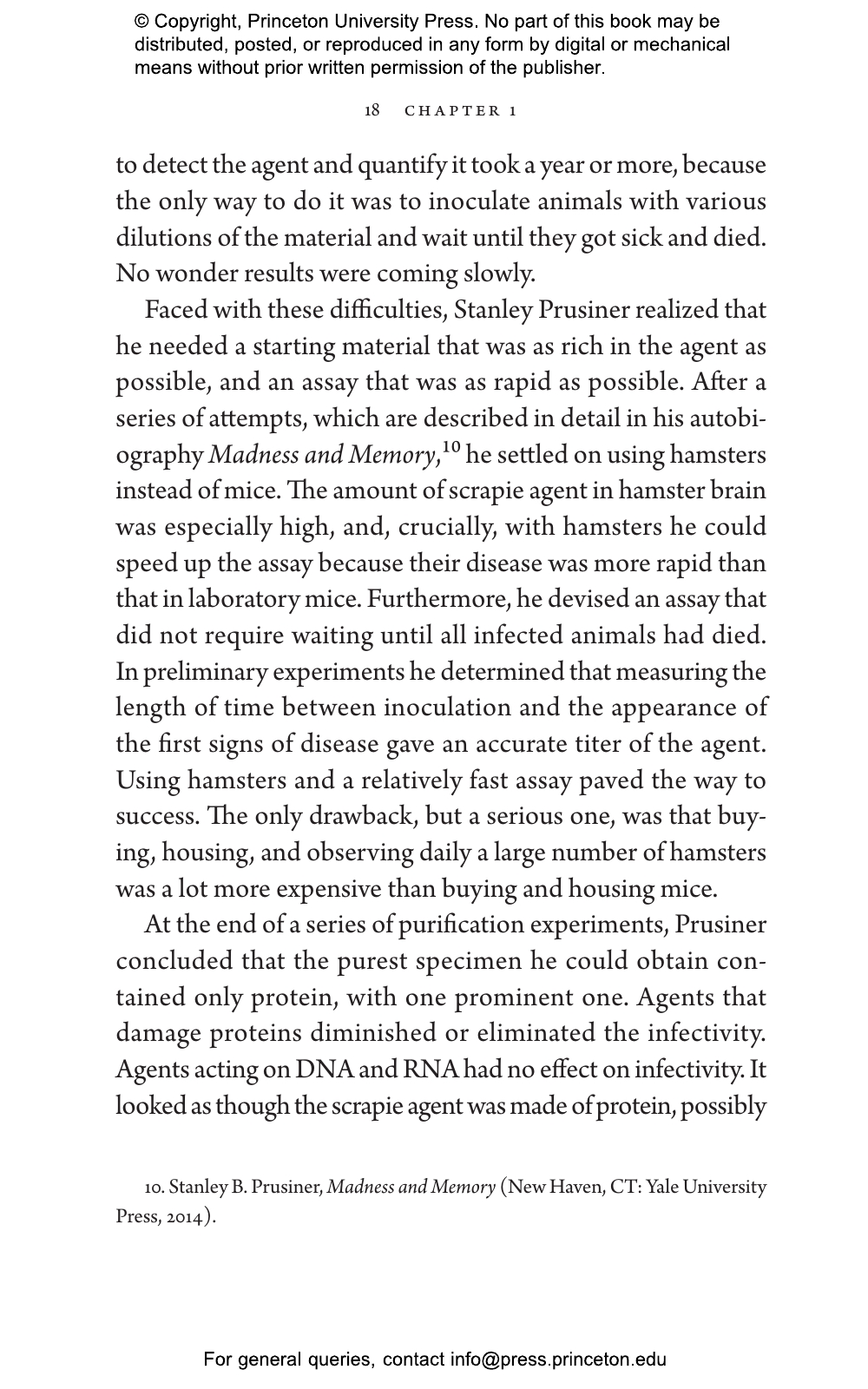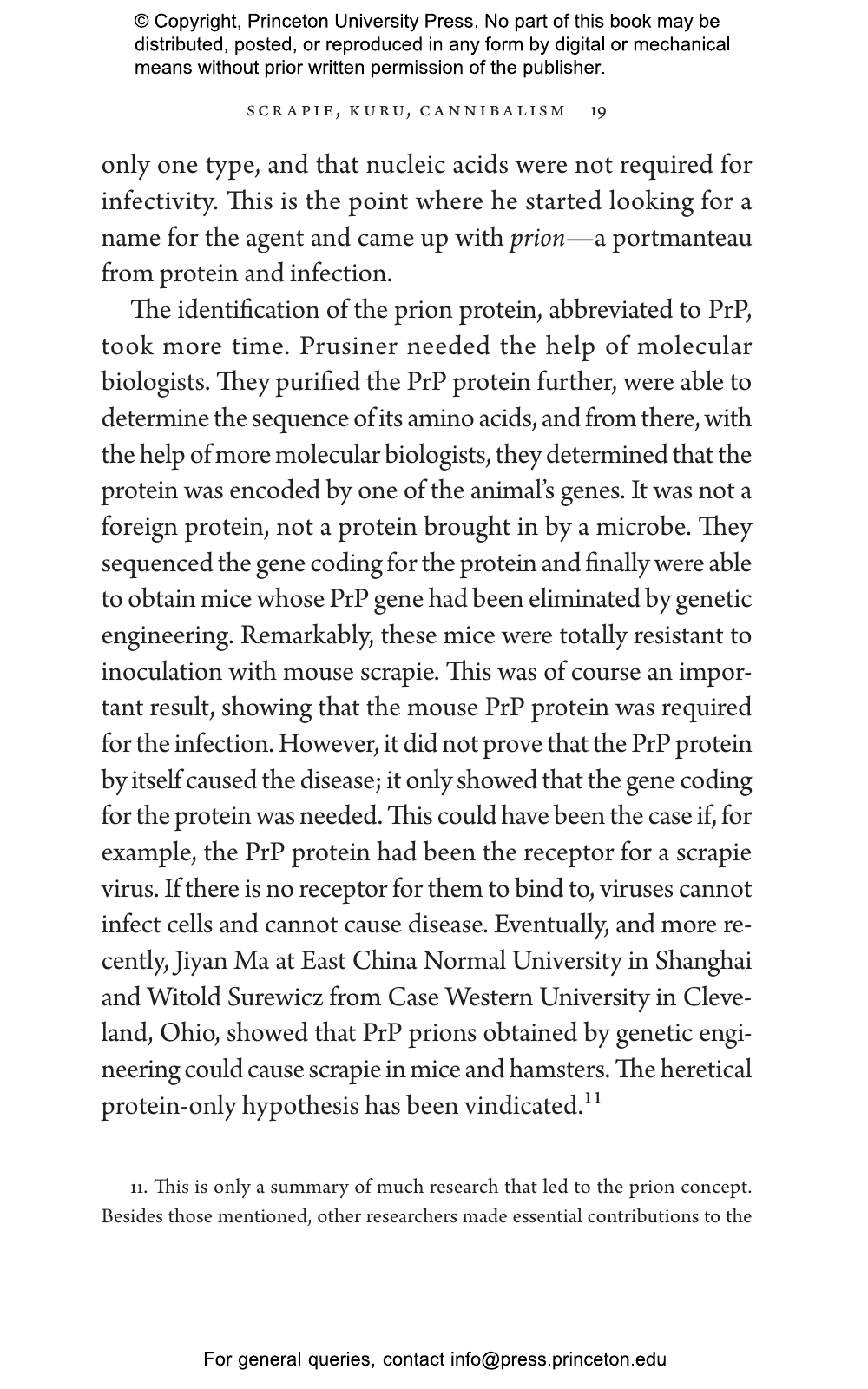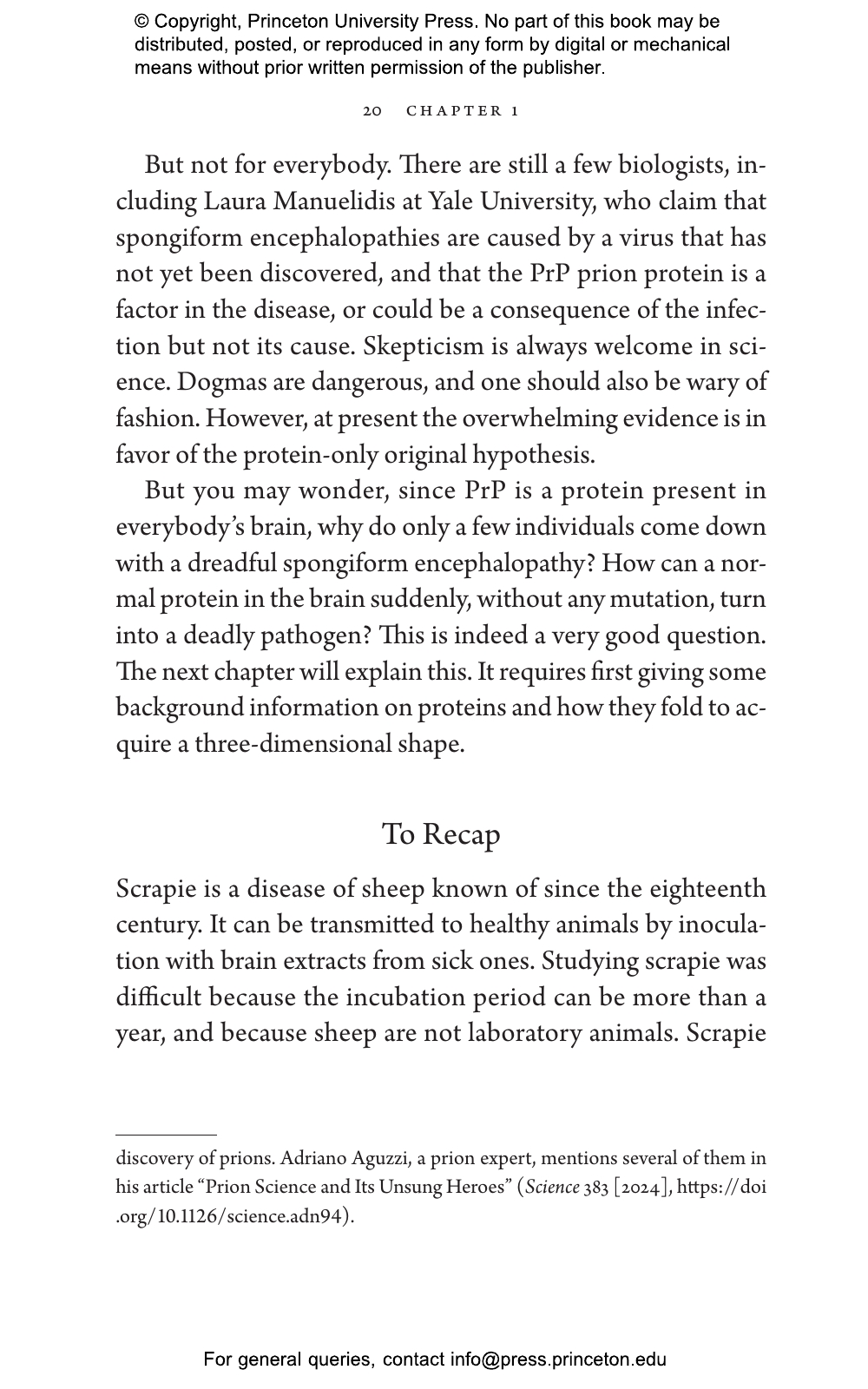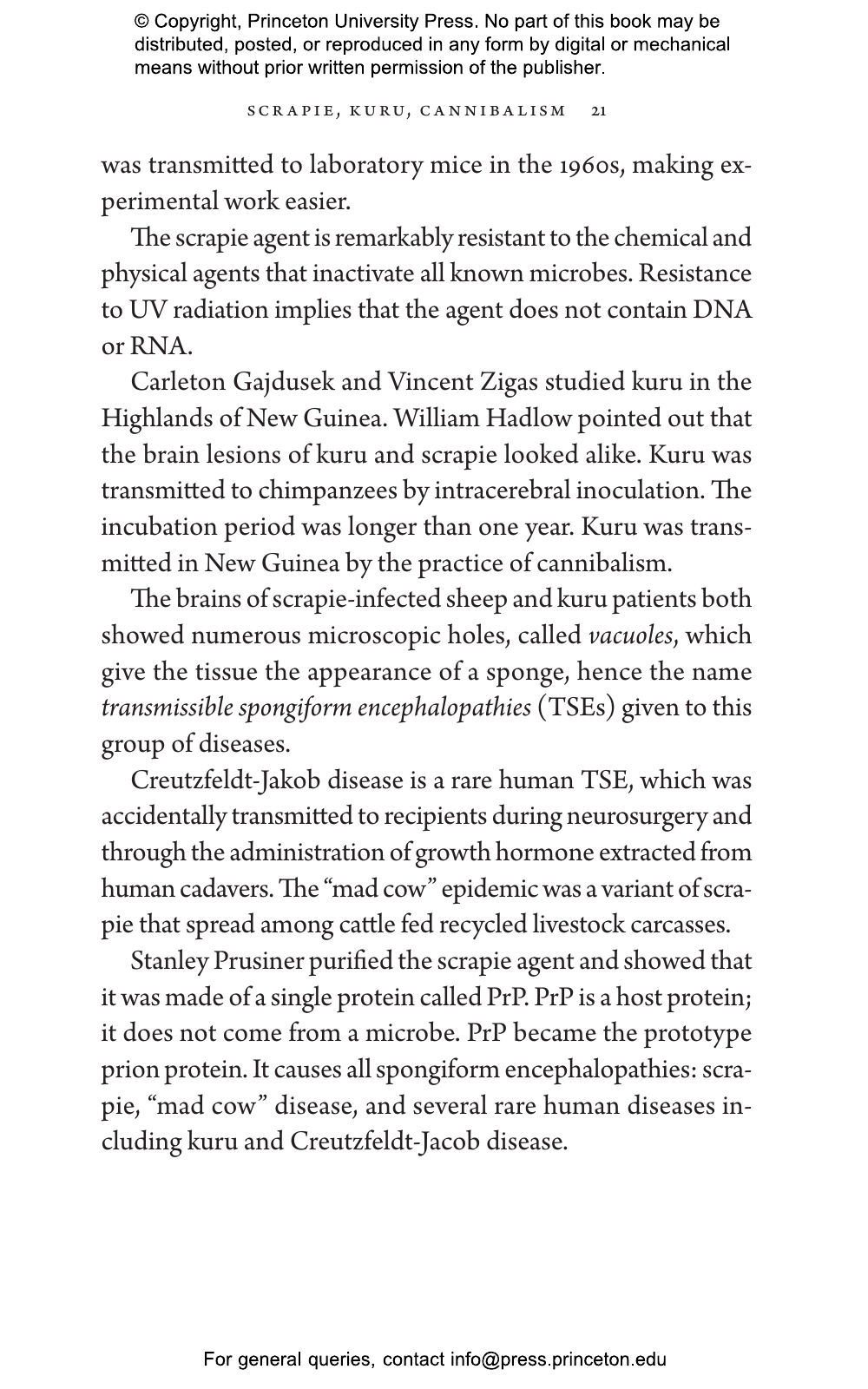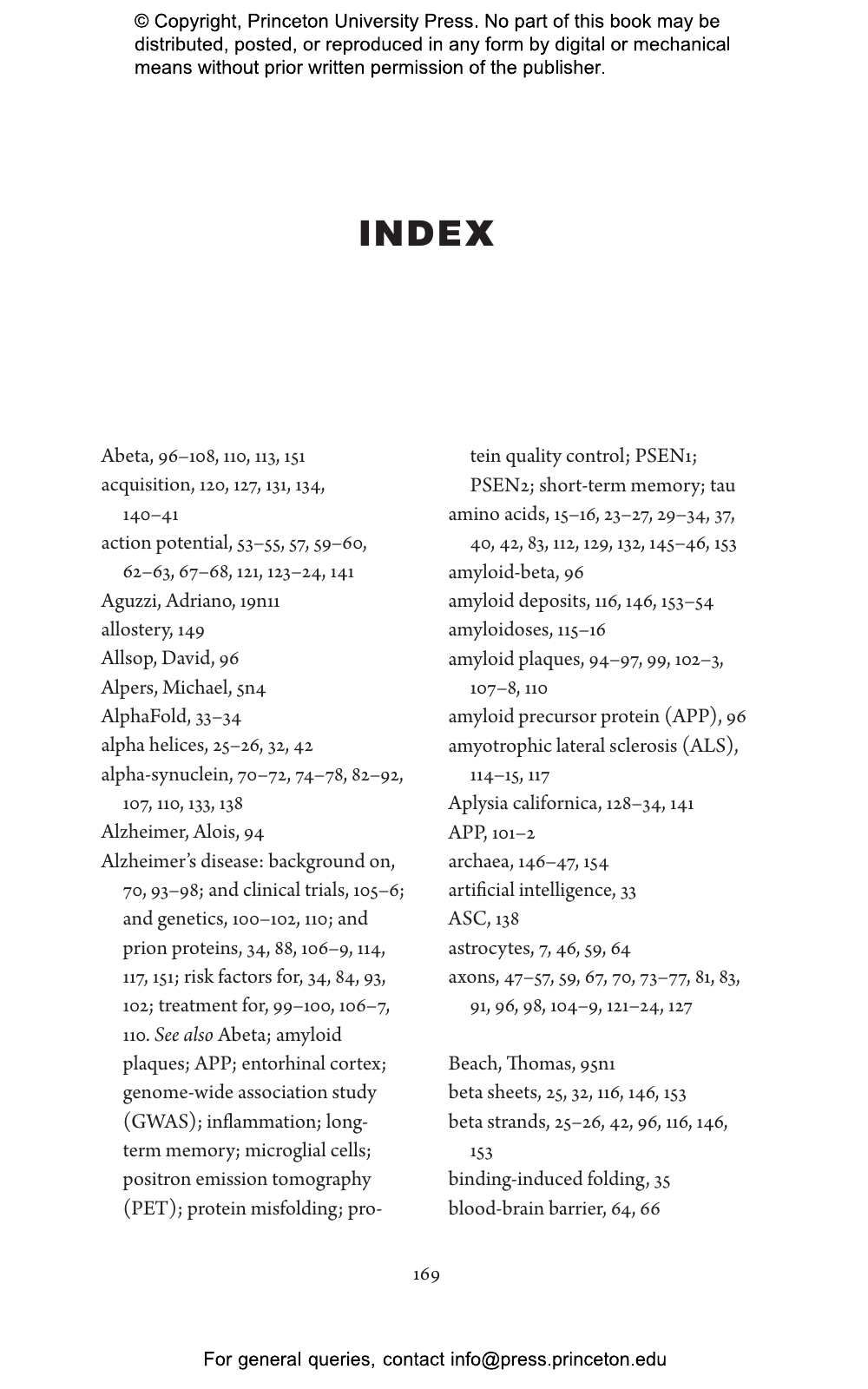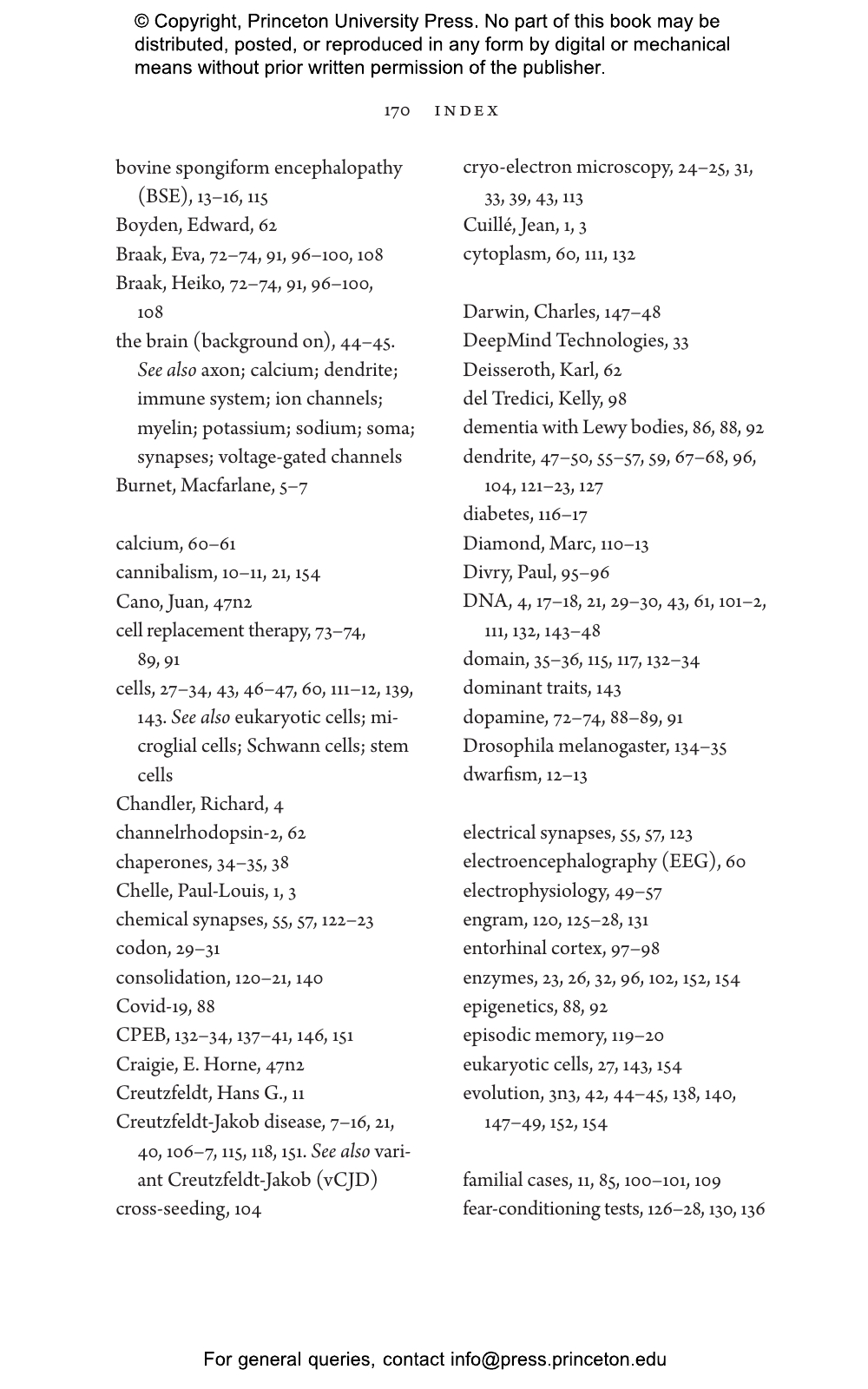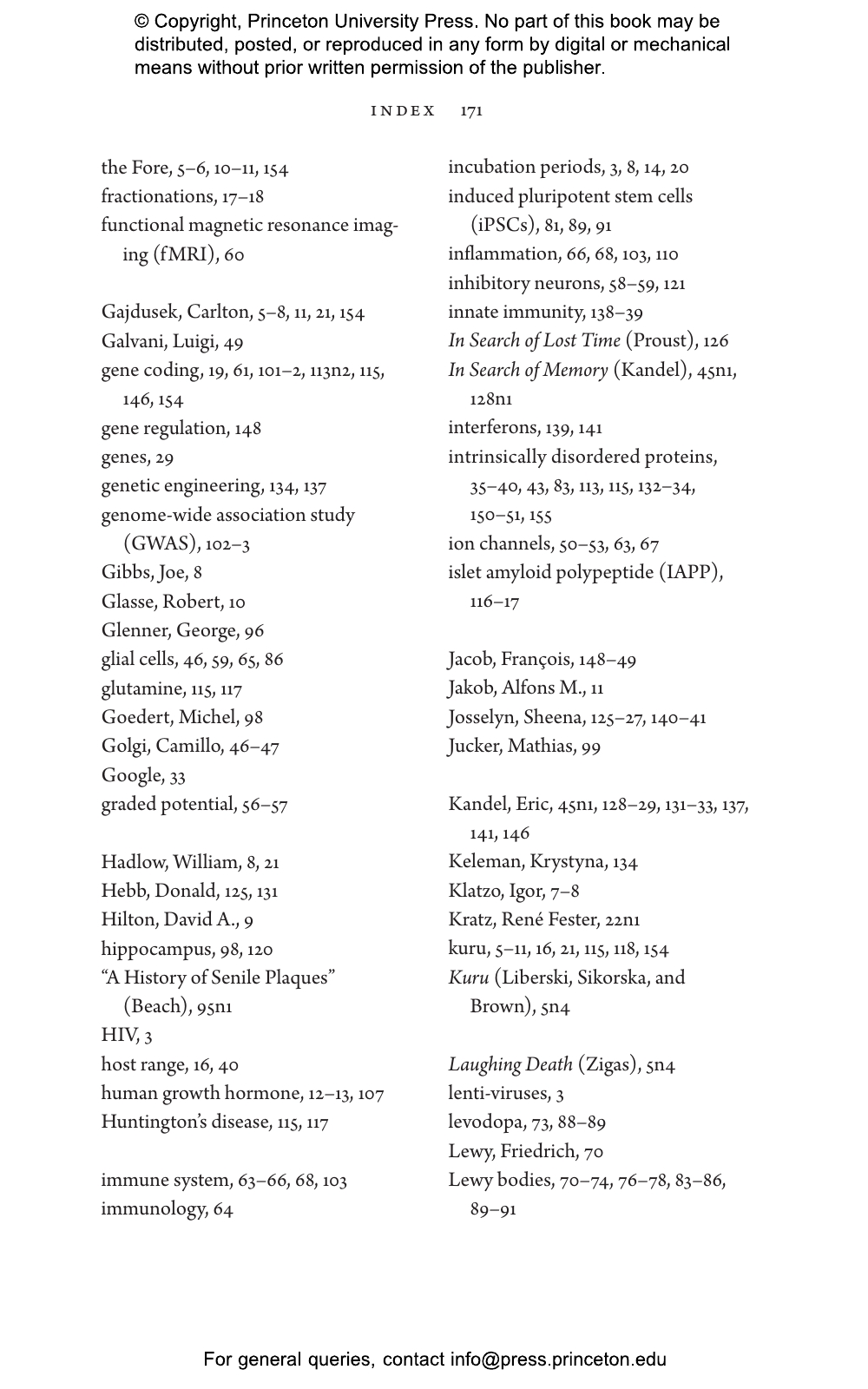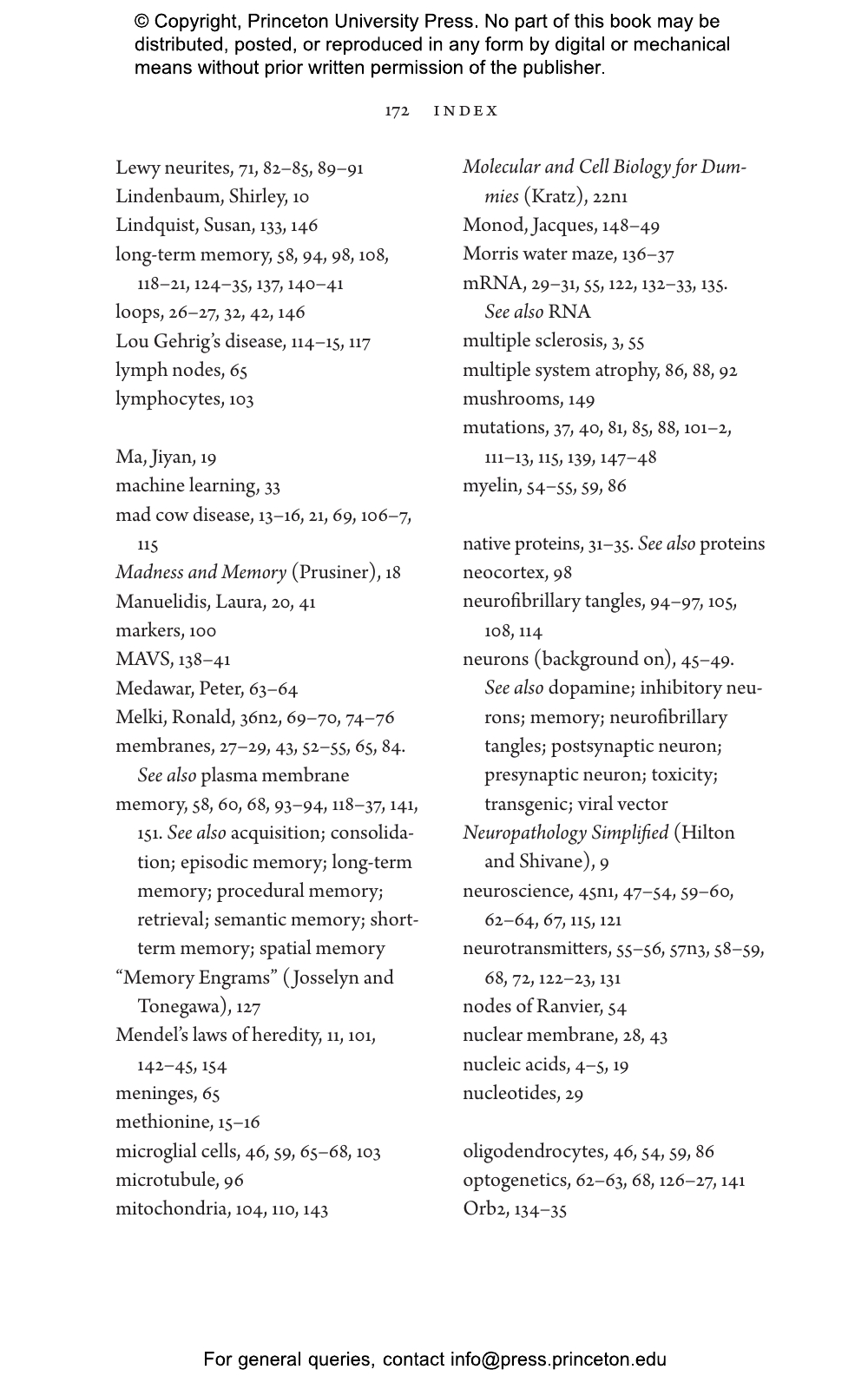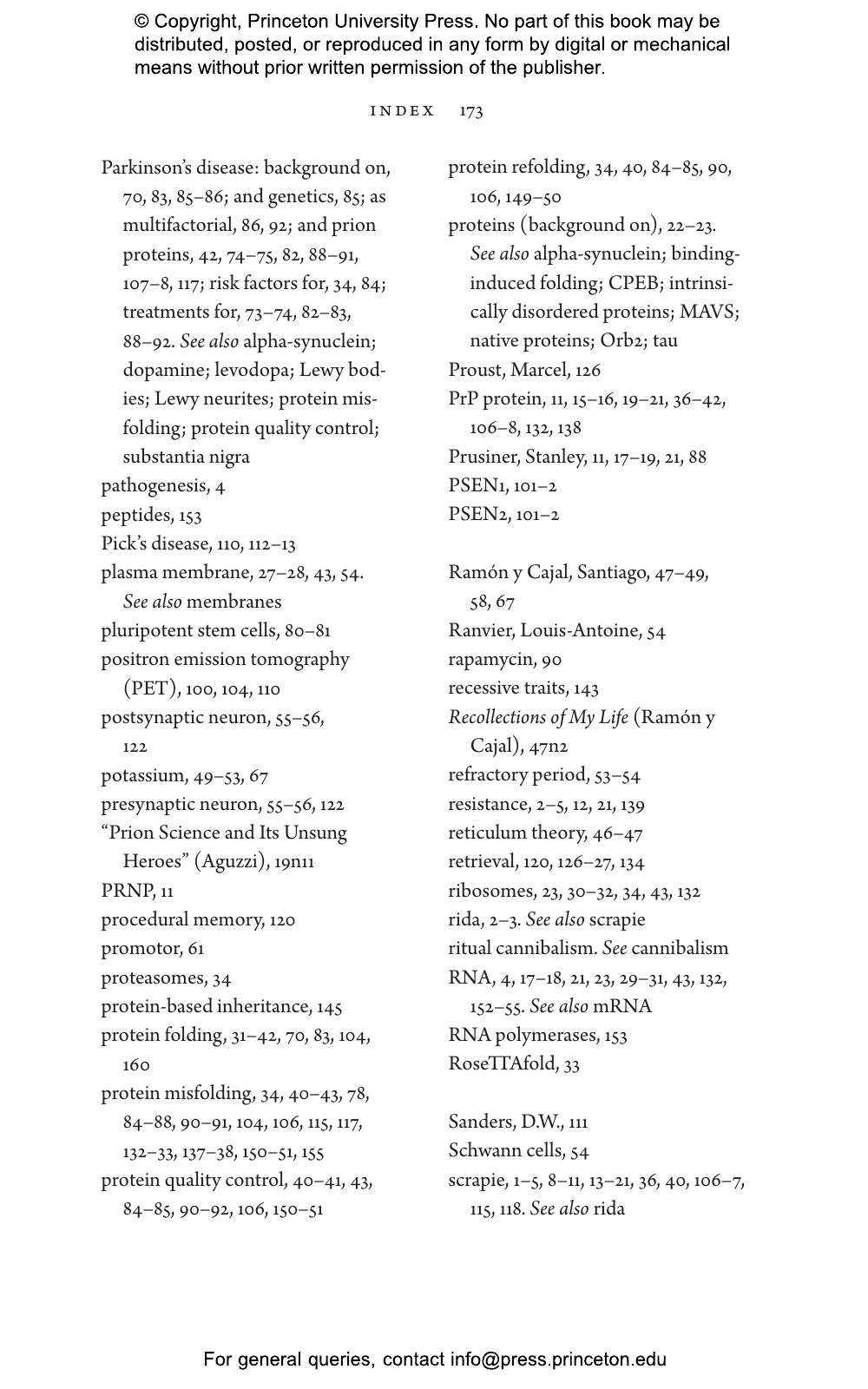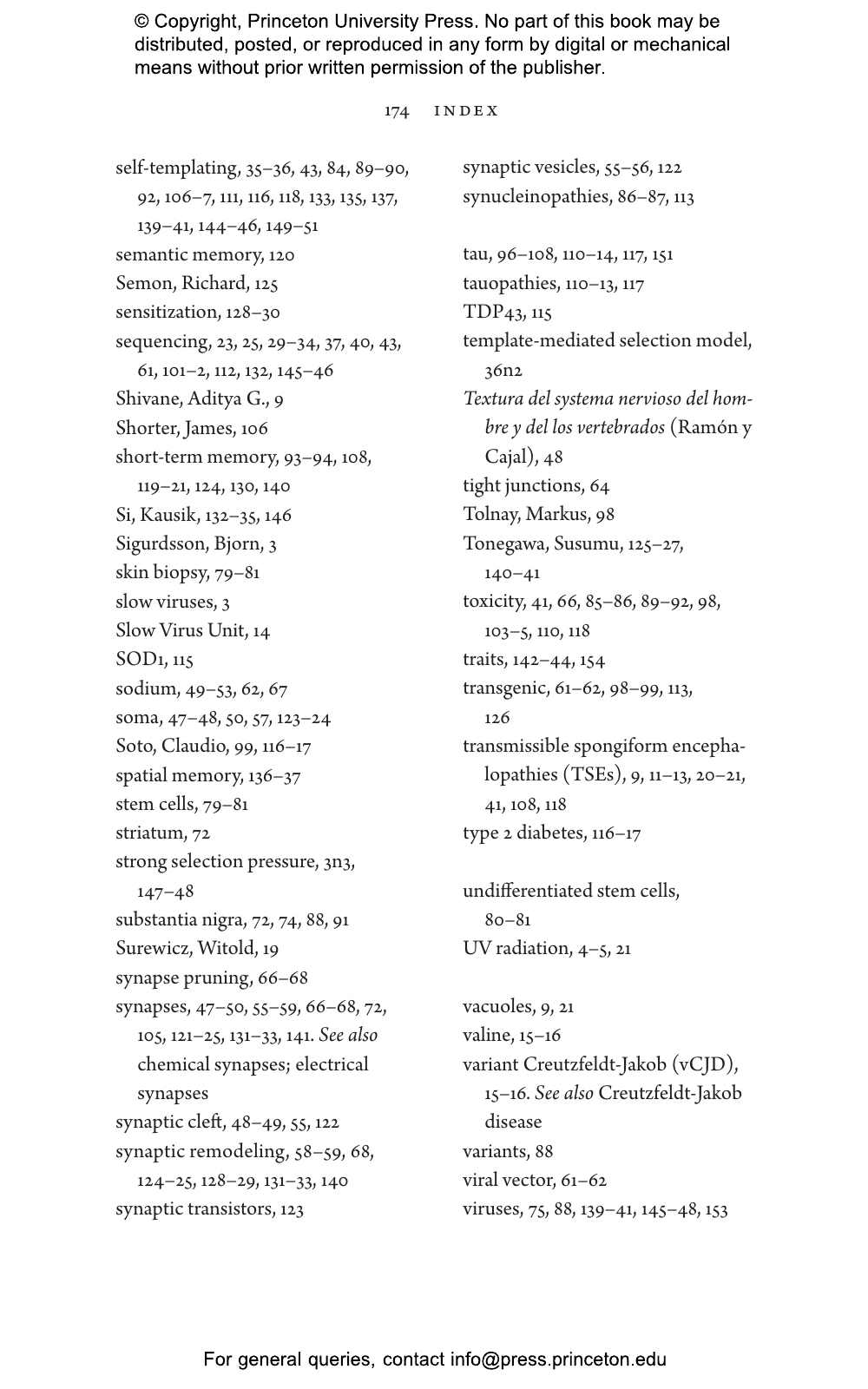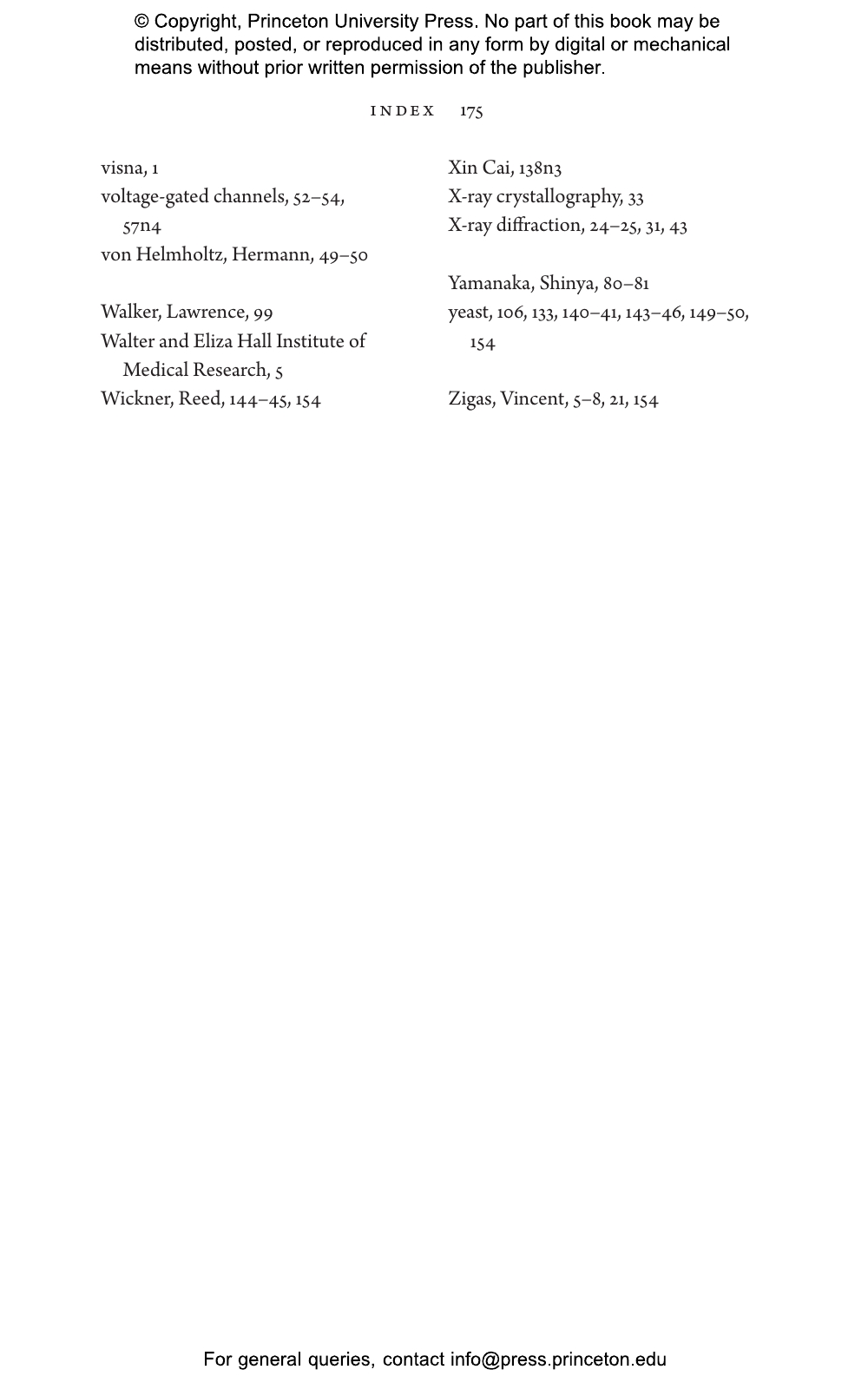Over the last decade, scientists have discovered the importance and widespread presence in the body of a remarkable family of proteins known as prion proteins. Research links various types of prion proteins to neurodegenerative diseases such as Parkinson’s and Alzheimer’s—and this has fueled the search for new drugs that could halt the progression of these terrible disorders. Other discoveries have revealed the essential roles prion proteins play in memory and immunity, and—in an extraordinary finding—the part they may have played in the beginnings of life on our planet. In this engaging and accessible book, Michel Brahic tells the story of these amazing and versatile proteins.
Brahic, a leading researcher on diseases of the central nervous system, first describes the discovery of prions and their role in infection, beginning with early work on the animal disease scrapie and a mysterious human illness in New Guinea, apparently transmitted by cannibalism. Prions were eventually identified and named by Stanley Prusiner in the 1980s. (Brahic tells us Prusiner’s alternate name for prion was “piaf.”) Prion proteins were then revealed as the cause of other illnesses, from “mad cow” disease and its human counterpart, Creutzfeldt-Jakob disease, to such noninfectious brain disorders as Parkinson’s and Alzheimer’s. While the prion proteins responsible for diseases are definitively “bad,” Brahic also explains that these abnormal prions are rare exceptions. Most of the time, prion proteins actually serve “good” and vital functions—and they may even have been present at the origin of life itself.
Michel Brahic, an expert in viral and prion infections of the brain, is Professeur Honoraire at Institut Pasteur in Paris. He has been Directeur de Recherche at CNRS and Consulting Professor at Stanford University School of Medicine. His work has been published in Nature, Cell, New Scientist, and other journals.
"Michel Brahic provides a thorough history of prion proteins that delves beyond their well-documented role in neurodegenerative diseases. A prion researcher himself, Brahic expertly details the origins of his field."—Francisco J. Rivera-Rosario, The Transmitter
"Michel Brahic provides a close-up view of these mysterious proteins. . . . [and] provides a clear, straightforward overview of how the nervous system and proteins function."—Ed Cara, Gizmodo
"Brahic writes succinctly about the science, and with feeling about people harmed by prion diseases."—Meghan Rosen, Science News
"[The Power of Prions] delivers an exceptional contribution to the scientific literature. It helps increase the public’s understanding of complex scientific matters, pushing the boundaries of knowledge further in the realm of neurodegenerative diseases. Not only does it spotlight the fascinating world of prions, but it also provides a beacon of hope for anyone touched by these alarming diseases. By opening up the exploration of new and advanced treatments, the book rightfully earns its place on every informed reader’s bookshelf."—Jonathan Antonio, Digital Chew
“A fascinating story, showing how the study of a strange sheep disease and a rare neurological human disease led to the revolutionary conclusion that a protein could be infectious – and how this notion shed new light on major neurodegenerative diseases, as well as on several unexplained biological phenomena. Anyone interested in science should read this book.” —Maxime Schwartz, former president of the Institut Pasteur
“The Power of Prions is an amazing read on a truly fascinating topic. From the discovery of prions to the latest and greatest findings, the book provides a uniquely comprehensive review of the topic. It highlights the exciting implications of mechanisms related to prions in several neurodegenerative diseases, including Alzheimer’s, and it underscores the power of cutting-edge technologies."—Anne Brunet, Stanford University
“Brahic’s fresh and engaging overview of the whole field brings this important story very much up to date with the latest thinking on the role of self-templated protein misfolding in diverse biological processes including memory formation, anti-viral immunity, environmental adaptation, and evolution.”—Fiona Houston, The Roslin Institute, University of Edinburgh
“A unique and accessible approach to understanding basic concepts of prion biology.”—Patrick Bosque, Denver Health and University of Colorado


